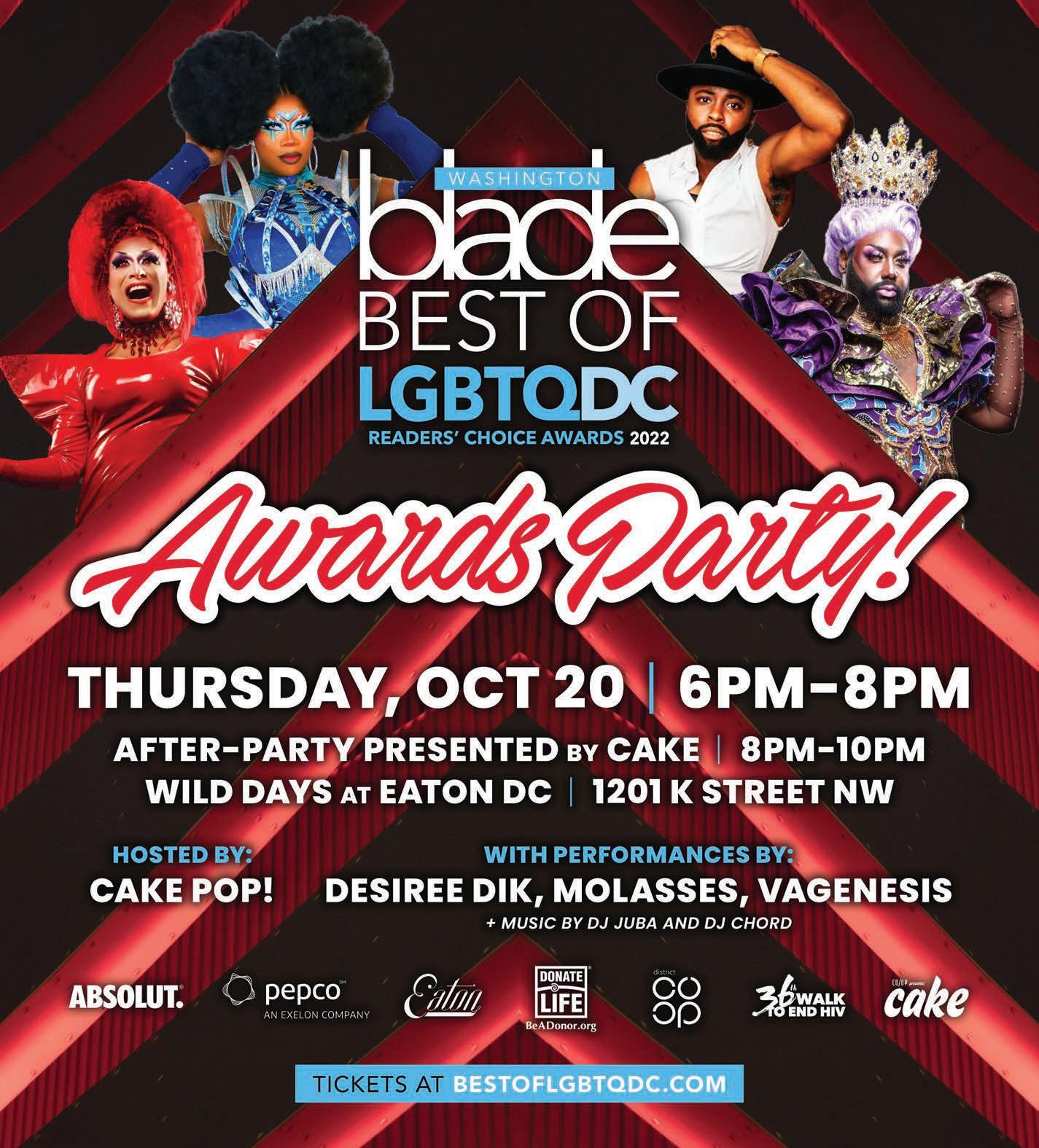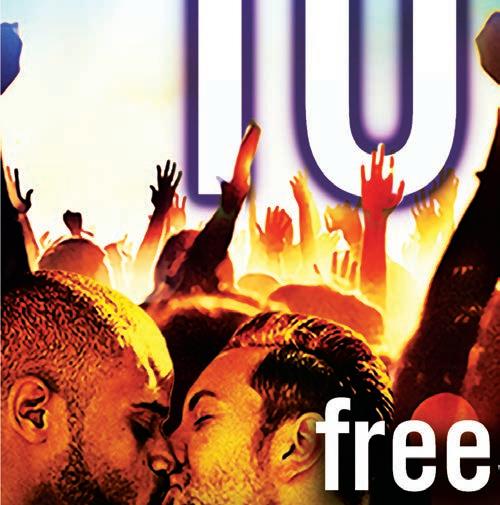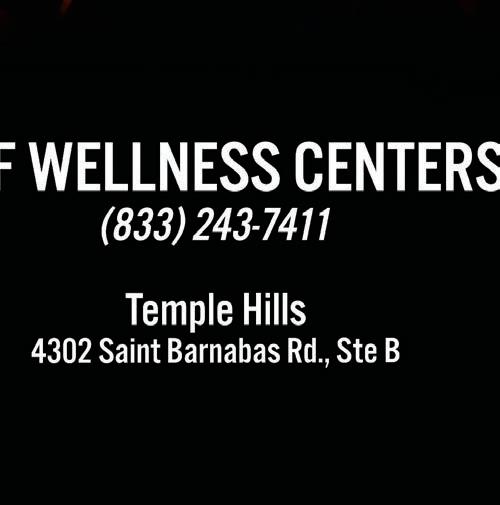






























































ADDRESS

PO Box 53352
Washington DC 20009
PHONE
202-747-2077
E-MAIL news@washblade.com

INTERNET washingtonblade.com
PUBLISHED BY
Brown Naff Pitts Omnimedia, Inc.
PUBLISHER
LYNNE J. BROWN lbrown@washblade.com ext. 8075

EDITORIAL
EDITOR
KEVIN NAFF knaff@washblade.com ext. 8088
SR. NEWS REPORTER
LOU CHIBBARO JR. lchibbaro@washblade.com ext. 8079


NEWS REPORTER
CHRIS JOHNSON cjohnson@washblade.com ext. 8083
REPORTER & INTERNATIONAL NEWS EDITOR
MICHAEL K. LAVERS mlavers@washblade.com
POP CULTURE REPORTER
JOHN PAUL KING PHOTO EDITOR
MICHAEL KEY mkey@washblade.com
TINASHE CHINGARANDE, DUNIA ORELLANA, REPORTAR SIN MIEDO, PARKER PURIFOY, PETER ROSENSTEIN, MARK LEE, LATEEFAH WILLIAMS, KATE CLINTON, KATHI WOLFE, ERNESTO VALLE, YARIEL VALDÉS GONZÁLEZ, LYNARE ROBBINS, PHILIP VAN SLOOTEN, KATLEGO K. KOLANYANE-KESUPILE, KAELA ROEDER, TREMENDA NOTA, ALBERTO J. VALENTÍN, MAYKEL GONZÁLEZ VIVERO, ORGULLO LGBT. CO, ESTEBAN GUZMAN
CREATIVE DESIGN/PRODUCTION
AZERCREATIVE.COM
SALES & ADMINISTRATION
DIRECTOR OF SALES & MARKETING









STEPHEN RUTGERS srutgers@washblade.com ext. 8077


SR. ACCT. EXECUTIVE
BRIAN PITTS bpitts@washblade.com ext. 8089
ACCT. EXECUTIVE
JOE HICKLING jhickling@washblade.com ext. 8094
CLASSIFIED ADVERTISING/ADMINISTRATION


PHILLIP G. ROCKSTROH prockstroh@washblade.com ext. 8092
NATIONAL ADVERTISING
RIVENDELL MEDIA 212-242-6863; sales@rivendellmedia.com
For distribution, contact Lynne Brown at 202-747-2077, ext. 8075. Distributed by MediaPoint, LLC

All material in the Washington Blade is protected by federal copyright law and may not be reproduced without the written consent of the Washington Blade. The sexual orientation of advertisers, photographers, writers and cartoonists published herein is neither inferred nor implied. The appearance of names or pictorial representation does not necessarily indicate the sexual orientation of that person or persons. Although the Washington Blade is supported by many

we cannot accept responsibility for claims made by
editorial material is accepted by the Washington Blade, but the paper cannot take responsibility for its return. The editors reserve the right to accept, reject or edit any submission. A single copy of the Washington Blade is available from authorized distribution points, to any individual within a 50-mile radius of Washington, D.C. Multiple copies are available from the Washington Blade office only. Call for rates. If you are unable to get to a convenient free distribution point, you may receive a 52-week mailed subscription for $195 per year or $5.00 per single issue. Checks or credit card orders can be sent to Phil Rockstroh at prockstroh@ washblade.com.
changes to the Washington Blade,

DC
The Washington Blade is
Inc. Individual
mailed
year. Periodical
offices. Editorial
Other
and in
are

The Washington Blade announced plans for the 21st annual Best Of LGBTQ D.C. Awards Party. The event will be held on Thursday, Oct. 20, 6-8 p.m. at the Eaton Hotel (1201 K. St., N.W.).

Winners in more than 60 categories will be announced and the event will feature performances from Desiree Dik, Molasses, and Vagenesis; Cake Pop! will serve as host. Music will be provided by DJ Juba and DJ Chord. Sponsors include Absolut, Pepco, Washington Regional Transplant Community, and Eaton Hotel.
There will be an after party from 8-10 p.m. presented by Cake. Attendees must be 21 and over. Tickets available now at bestofLGBTQDC.com.
The Blade Foundation this week announced the recipient of an inaugural reporting fellowship focused on covering stories at the intersection of LGBTQ identities and race.
Brandie Bland, a senior majoring in journalism at the University of Maryland, was selected from a group of applicants as recipient of the fellowship.

“As someone passionate about telling stories at the intersection of culture and news, I am honored to have been chosen as a Blade Foundation fellow,” Bland said. “I look forward to expanding the horizons of my journalistic perspective and learning from those who have forged the path ahead of me as I explore the nuances, challenges, and joys of reporting on the LGBTQIA community.”
The fellowship is funded by a grant from the Leonard-Litz Foundation.
“This fellowship is an opportunity for us all to explore the vast and varied intersectional identities of the LGBTQ+ community,” said Colin Hosten, executive director of The Leonard Litz LGBTQ+ Foundation.
“Our struggles are impossible to separate — quite literally for many people. Let’s not forget, people of color were the ones leading the
fight at Stonewall. At the Leonard-Litz Foundation, Racial Justice is core to our mission of helping LGBTQ+ people fulfill their potential. We cannot build a whole future if we only tell half our history.”
Blade Foundation Director Kevin Naff welcomed Bland this week.
“We’re excited to work with Brandie,” Naff said. “She’s a talented young journalist who will bring readers a compelling range of stories during her fellowship. Thank you to the Leonard-Litz Foundation for funding this important work.”
Bland’s first piece examining the unique challenges faced by communities of color on National Coming Out Day is available now at washingtonblade.com.
FROM STAFF REPORTSfinished second on Oct. 8 in a two-candidate race for the Democratic nomination for a special election to fill a vacant seat in the Virginia House of Delegates that includes parts of Fairfax County.
tions on Saturday, Oct. 8, by a margin of 2,356 votes for Seibold to Frisch’s 1,143 votes, according to results released by the Fairfax Democratic Party.
especially when so many people invest their time, talent, and hard-earned money to support your cause,” he said.
KARL V. FRISCHFrisch lost to public school teacher and community activist Holly Seibold at a Democratic Party caucus held in three loca-
Seibold will now run as the Democratic nominee in a Jan. 10 special election to fill the House of Delegates seat in the 35th District. The seat became vacant when Democratic incumbent Mark Keam resigned to take a position in the administration of President Joe Biden. The district includes the towns or cities of Dunn Loring, Oakton, Tysons, and Vienna.
“I’m proud of the campaign we ran and grateful for all who volunteered, endorsed, contributed, and otherwise supported us,” Frisch said in a statement. “Losing is always difficult –
“That said, losing is a little easier to digest when it’s to someone as capable as Holly Seibold,” said Frisch. “She will be a great delegate. We have three months until the Special Election to fill Mark Keam’s seat, and I will do whatever I can to help her succeed.”
Frisch won election to the Fairfax County School Board in 2019 to represent the county’s Providence District, becoming the first openly LGBTQ person elected to a local office in Fairfax, which is Virginia’s largest county.
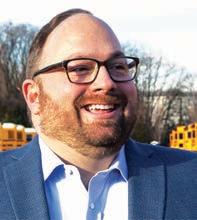 LOU CHIBBARO JR.
LOU CHIBBARO JR.
A 19-year-old Herndon, Va., man has been charged with Second-Degree Murder and Grand Larceny-Auto Theft for allegedly fatally stabbing gay hairstylist Carroll Davis, 62, inside Davis’s home in Leesburg, Va. and allegedly stealing Davis’s car on Sept. 30.
According to the Loudoun County Sheriff’s Office and court records, Mario Hernandez-Navarrate was arrested one day later on Oct. 1 after he crashed Davis’s 2017 Mercedes on Interstate-66 at Gallows Road in Fairfax County.
News 4 Washington reported that Davis’s niece, Carroll Davis, told the TV news station that her uncle and Hernandez-Navarrate had been dating for a few months, but Davis’s family members knew very little about the accused killer.
The Loudoun County Sheriff’s Office told Fox 5 News it received a call from the hair salon where Davis worked on Sept. 30 asking them to check on Davis because he did not show up for work. The Sheriff’s Office said deputies went to Davis’s home on Evergreen Mills Road in Leesburg and found Davis’s body and a bloody knife on a counter.
Fox 5 News reports that court documents state that at the time of his arrest, Hernandez-Navarrate had “dried up blood on his feet and under his fingernails” and admitted to being at Davis’s home on the day Davis’s body was found.
Online court records obtained by the Blade show that at the time he was charged with Davis’s murder Hernandez-Navarrate had been awaiting trial for a July 27, 2022,
arrest on charges of robbery with a weapon and possession of illegal drugs.
“Now, Davis is being remembered as someone whose talents as a master hairstylist brought laughter and joy to many people,” News 4 DC’s Jackie Bensen reported in an Oct. 3 broadcast. “Many of his clients had been coming to him for decades, and he was regarded as family by those who sat in his chair,” Bensen reported.
Court records show Hernandez-Navarrate, who was being held without bond, was scheduled to appear for an arraignment at Loudoun County General District Court on Oct. 11.
LOU CHIBBARO JR.of





























The Wanda Alston Foundation states on its website that it made history in 2008 when it opened D.C.’s first transitional housing program solely dedicated to LGBTQ youth ages 18 to experiencing homelessness.
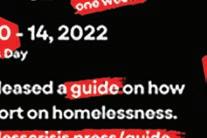

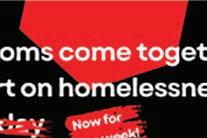
As part of that program, the foundation, named after the late and beloved LGBTQ rights advocate Wanda Alston, has since opened two more LGBTQ youth homeless facilities, including one that opened last year that also made history.
Referred to as Renita’s, it’s a two-bed, two-year transitional housing program believed to be the first known such facility focused specifically on serving homeless transgender men of color.
In anuary 01 , the D.C. LGBTQ youth advocacy organization SM AL opened the first of five housing sites it currently operates that can serve up to LGBTQ youth experiencing homelessness.
“Following the closure of Casa Ruby, SM AL has been working with our partners at other housing providers, the D.C. Department of Human Services, and the Mayor’s Office of LGBTQ Affairs to identify and fill gaps in services,” SM AL spokesperson Hancie Stokes told the Washington Blade.


“Most directly, SM AL has launched a new Latinx Street Outreach program that is designed to support Spanish-speaking LGBTQ youth who may have been connected to services or in need of new services,” Stokes said in an email. “We started piloting this program ust last month and have already begun working with Spanish-speaking youth to connect or reconnect them with services, including housing, and assist them with obtaining vital documents, and navigating legal procedures,” she said.
In September 0 1, the D.C. Department of Human Services informed Casa Ruby it would not renew its main grant that funded the Casa Ruby homeless shelter program. At that time, DHS announced it had awarded a grant for a new D.C. LGBTQ youth homeless shelter to Covenant House, a nonprofit group that provides homeless youth services nationwide. The Washington ost reported the grant was for 8,000, Covenant House announced it opened the new -bed LGBTQ youth shelter, called Shine, on Sept. 0, 0 1, in the city’s Deanwood neighborhood in Northeast D.C. Although other non-LGBTQ organizations currently provide homeless-related services, including shelter accommodations, for LGBTQ youth, the Covenant House Shine facility is believed to be the city’s first LGBTQ shelter operated by a non-LGBTQ specific organization.
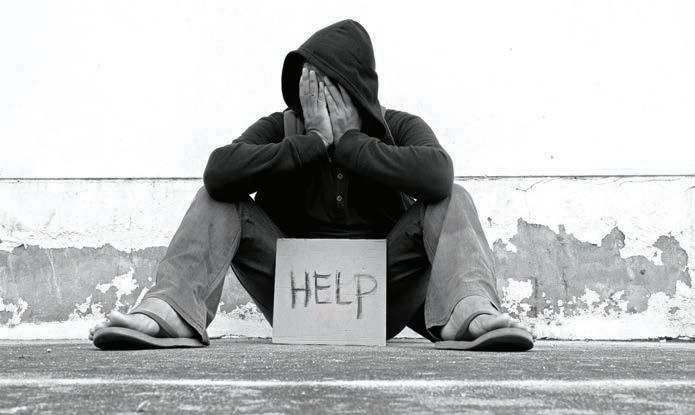
“Most LGBTQ young people access services from non-LGBTQ-specific agencies,” Covenant House states on its D.C. website. “At Covenant House, we’re proud of the diversity of the youth in our houses and the staff who welcome and serve them,” the statement says. “All young people facing homelessness are welcome here and are embraced with unconditional love, absolute respect, and relentless support.”
With nearly all LGBTQ specific homeless facilities in D.C. focusing on youth, the city’s first official shelter for LGBTQ adults opened its doors on uly 1 of this year following a ribbon-cutting ceremony led by D.C. Mayor Muriel Bowser.
Like the Alston Foundation, SM AL states on its website that it provides a wide range of services for its LGBTQ youth residents in addition to a safe and stable shelter, including food, case management services, mental health counseling, crisis intervention, and employment related skills development.
The two groups also have designated at least one of their housing facilities to offer their residents extended transitional housing for up to six years.
Beginning in 01 , Casa Ruby, under the direction of its founder Ruby Corado, evolved into the city’s largest LGBTQ specific emergency shelter facility, operating what it said was a greater than 50-bed shelter program at seven locations. The program provided services in both English and Spanish to youth and some adults. It had a special outreach to transgender women of color in need of housing.
But due to a financial crisis brought about by the loss of hundreds of thousands of dollars in D.C. government grants and which remains under investigation by the Office of the D.C. Attorney General, Casa Ruby curtailed and eventually shut down all of its operations during a year-long period that culminated this past uly. In court documents filed as part of a civil complaint filed against Casa Ruby, the AG’s office said, among other things, the loss of city funding was brought about by Casa Ruby’s failure to provide required finance reports verifying how the money was spent. Corado disputes that allegation.


At the request of the AG’s office, a D.C. Superior Court udge has placed Casa Ruby in receivership and appointed the Wanda Alston Foundation as the receiver.


In a report released last month, the Alston Foundation recommended that Casa Ruby be dissolved, saying its debts far exceed any remaining assets. The udge has yet to hand down a ruling on whether to dissolve the once highly regarded LGBTQ organization or take steps to determine if it can be revived.
Since its shutdown, other local organizations, including SM AL, have taken steps to provide support for the Casa Ruby clients impacted by the shutdown.
The 0-bed shelter, located in the city’s Marshall Heights neighborhood at 00 50th St., S.E, will accommodate unaccompanied adults 5 years of age and older, according to a statement released by the mayor’s office.
“The shelter will provide trauma-informed case management services including mental health, substance abuse treatment, medical, and victims’ services,” the statement says.
“We are proud to cut the ribbon on a shelter that embodies our D.C. values as well as our commitment to making homelessness rare, brief, and nonrecurring,” Bowser said at the ceremony. “With this new facility, we’re breaking down barriers to shelter, building community, connecting residents with the trauma-informed services they need to live healthy, happy lives,” the mayor said.
nder city funding, the new LGBTQ adult shelter is being operated by the Community artnership for the revention of Homelessness TC , the statement from the mayor’s office says. It says two other local nonprofit groups, Coalition for the Homeless and the KBEC Group, Inc., will assist TC in operating the shelter.
At least two other non-LGBTQ locally based organizations – the Latin American outh Center LA C and Sasha Bruce outhwork – also provide services for homeless LGBTQ youth, including housing-related services, the two groups state on their websites.
Stokes, the SM AL spokesperson, said the non-LGBTQ organizations operating homeless programs for LGBTQ people are meeting a need for increased services. But she said additional training may be needed to ensure that all organizations can fully meet the specific needs of their LGBTQ clients.
“There is still a lot of work that needs to be done in order to ensure LGBTQ youth who are matched with non-LGBTQ-specific providers are affirmed, welcomed, and supported fully,” Stokes said.
“SM AL and our partners have been working to increase cultural competency among all housing providers, but there is a continued need to invest in training providers to build capacity to directly serve LGBTQ youth, as well as creating solid foundations for additional providers who are accessible to LGBTQ youth,” she said.
Existing groups step in to fill gaps created by Casa Ruby shutdownRoughly
Nature Lover
to DOVATO
by
Healthcare
DOVATO is different: unlike other HIV treatments that contain 3 or 4 medicines, DOVATO contains just 2 medicines in 1 pill.
DOVATO is a complete prescripton regimen for adults new to HIV-1 treatment or replacing their current HIV-1 regimen when their doctor determines they meet certain requirements. Learn more at DOVATO.com
Results may vary.
*Undetectable means the amount of HIV in your blood is below the level that can be measured by a lab test.
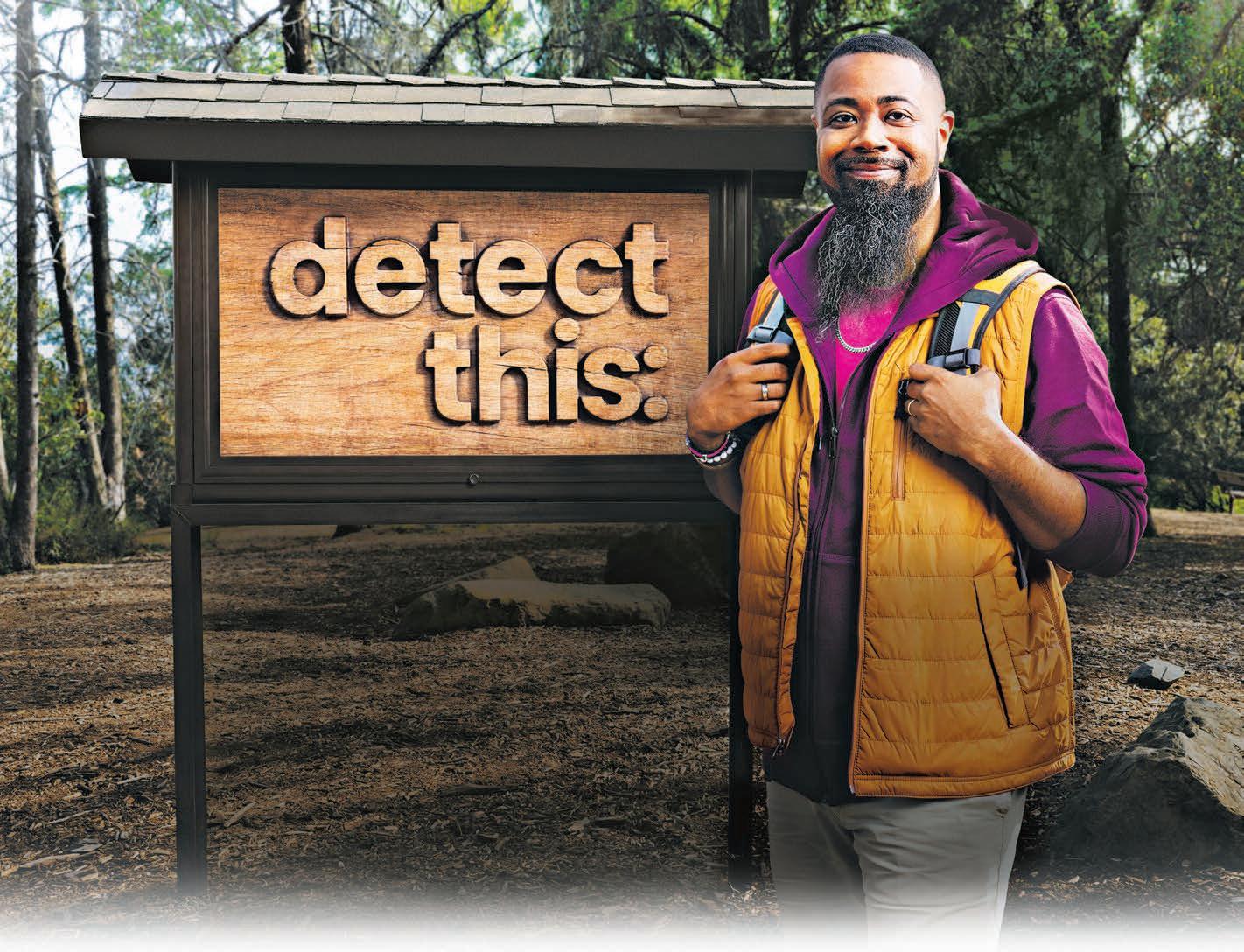
†Compared to a 3- or 4-drug regimen.
This is only a brief summary of important information about DOVATO and does not replace talking to your healthcare provider about your condition and treatment.
What is the most important information I should know about DOVATO?
If you have both human immunodeficiency virus-1 (HIV-1) infection and Hepatitis B virus (HBV) infection, DOVATO can cause serious side effects, including:
• Resistant HBV. Your healthcare provider will test you for HBV infection before you start treatment with DOVATO. If you have HIV-1 and hepatitis B, the HBV can change (mutate) during your treatment with DOVATO and become harder to treat (resistant). It is not known if DOVATO is safe and effective in people who have HIV-1 and HBV infection.
• Worsening of HBV infection. If you have HBV infection and take DOVATO, your HBV may get worse (flare-up) if you stop taking DOVATO. A “flare-up” is when your HBV infection suddenly returns in a worse way than before.
° Do not run out of DOVATO. Refill your prescription or talk to your healthcare provider before your DOVATO is all gone.
° Do not stop DOVATO without first talking to your healthcare provider.
° If you stop taking DOVATO, your healthcare provider will need to check your health often and do blood tests regularly for several months to check your liver function and monitor your HBV infection. It may be necessary to give you a medicine to treat hepatitis B. Tell your healthcare provider about any new or unusual symptoms you may have after you stop taking DOVATO.
For more information about side effects, see “What are possible side effects of DOVATO?”

DOVATO is a prescription medicine that is used without other HIV-1 medicines to treat human immunodeficiency virus-1 (HIV-1) infection in adults: who have not received HIV-1 medicines in the past, or to replace their current HIV-1 medicines when their healthcare provider determines that they meet certain requirements. HIV-1 is the virus that causes Acquired Immune Deficiency Syndrome (AIDS). It is not known if DOVATO is safe and effective in children.
Please see additional Important Facts About DOVATO on the following page.
Ask your doctor about staying undetectable with fewer medicines in 1 pill.
Who should not take DOVATO?
Do not take DOVATO if you:
• have ever had an allergic reaction to a medicine that contains dolutegravir or lamivudine.
• take dofetilide. Taking DOVATO and dofetilide can cause side effects that may be serious or life-threatening.
What should I tell my healthcare provider before using DOVATO?
Tell your healthcare provider about all of your medical conditions, including if you:
• have or have had liver problems, including hepatitis B or C infection.
• have kidney problems.
• are pregnant or plan to become pregnant. One of the medicines in DOVATO (dolutegravir) may harm your unborn baby.
° Your healthcare provider may prescribe a different medicine than DOVATO if you are planning to become pregnant or if pregnancy is confirmed during the first 12 weeks of pregnancy.
° If you can become pregnant, your healthcare provider may perform a pregnancy test before you start treatment with DOVATO.
° If you can become pregnant, you and your healthcare provider should talk about the use of effective birth control (contraception) during treatment with DOVATO.
° Tell your healthcare provider right away if you are planning to become pregnant, you become pregnant, or think you may be pregnant during treatment with DOVATO.
• are breastfeeding or plan to breastfeed. Do not breastfeed if you take DOVATO.
° You should not breastfeed if you have HIV-1 because of the risk of passing HIV-1 to your baby.
° One of the medicines in DOVATO (lamivudine) passes into your breastmilk.
° Talk with your healthcare provider about the best way to feed your baby.
Tell your healthcare provider about all the medicines you take, including prescription and over-the-counter medicines, vitamins, and herbal supplements.
Some medicines interact with DOVATO. Keep a list of your medicines and show it to your healthcare provider and pharmacist when you get a new medicine.
• You can ask your healthcare provider or pharmacist for a list of medicines that interact with DOVATO.
• Do not start taking a new medicine without telling your healthcare provider. Your healthcare provider can tell you if it is safe to take DOVATO with other medicines.
What are possible side effects of DOVATO?
DOVATO can cause serious side effects, including:
• See “What is the most important information I should know about DOVATO?”

• Allergic reactions. Call your healthcare provider right away if you develop a rash with DOVATO. Stop taking DOVATO and get medical help right away if you develop a rash with any of the following signs or symptoms: fever; generally ill feeling; tiredness; muscle or joint aches; blisters or sores in mouth; blisters or peeling of the skin; redness or swelling of the eyes; swelling of the mouth, face, lips, or tongue; problems breathing.
• Liver problems.People with a history of hepatitis B or C virus may have an increased risk of developing new or worsening changes in certain liver tests during treatment with DOVATO. Liver problems, including liver failure, have also happened in people without a history of liver disease or other risk factors. Your healthcare provider may do blood tests to check your liver. Tell your healthcare provider right away if you get any of the following signs or symptoms of liver problems: your skin or the white part of your eyes turns yellow (jaundice); dark or “tea-colored” urine; light-colored stools (bowel movements); nausea or vomiting; loss of appetite; and/or pain, aching, or tenderness on the right side of your stomach area.
• Too much lactic acid in your blood (lactic acidosis).Too much lactic acid is a serious medical emergency that can lead to death.Tell your healthcare provider right away if you get any of the following symptoms that could be signs of lactic acidosis: feel very weak or tired; unusual (not normal) muscle pain; trouble breathing; stomach pain with nausea and vomiting; feel cold, especially in your arms and legs; feel dizzy or lightheaded; and/or a fast or irregular heartbeat.
• Lactic acidosis can also lead to severe liver problems, which can lead to death. Your liver may become large (hepatomegaly) and you may develop fat in your liver (steatosis). Tell your healthcare provider right away if you get any of the signs or symptoms of liver problems which are listed above under “Liver problems.”
• You may be more likely to get lactic acidosis or severe liver problems if you are female or very overweight (obese).
• Changes in your immune system (Immune Reconstitution Syndrome) can happen when you start taking HIV-1 medicines. Your immune system may get stronger and begin to fight infections that have been hidden in your body for a long time. Tell your healthcare provider right away if you start having new symptoms after you start taking DOVATO.
• The most common side effects of DOVATO include: headache; nausea; diarrhea; trouble sleeping; tiredness; and anxiety.
These are not all the possible side effects of DOVATO. Call your doctor for medical advice about side effects.
You are encouraged to report negative side effects of prescription drugs to the FDA. Visit www.fda.gov/medwatch, or call 1-800-FDA-1088.
Where can I find more information?
• Talk to your healthcare provider or pharmacist.
• Go to DOVATO.com or call 1-877-844-8872, where you can also get FDA-approved labeling.
Trademarks are owned by or licensed to the ViiV Healthcare group of companies. March 2021 DVT:6PIL

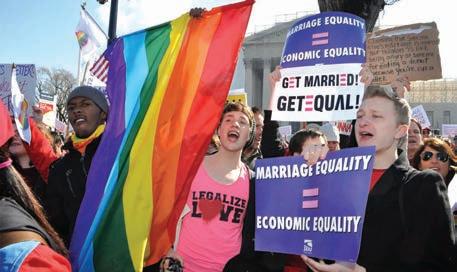
J.D. Vance, a candidate for U.S. Senate in Ohio who won the Republican presidential nomination thanks in part to backing from gay conservative entrepreneur Peter Thiel, signaled on Tuesday he’d vote against legislation pending before Congress seeking to codify same-sex marriage into law.

Vance made the comments during a debate with Democratic nominee Tim Ryan, with whom he’s locked in a closely watched race that may decide control of the Senate, after being asked about the Respect for Marriage Act.
“I’ve come out against this bill and I don’t think it’s actually about gay marriage or same-sex marriage or same-sex equality,” Vance said. “Look, gay marriage is the law of the land of this country and I’m not trying to do anything to change that.”
Ryan, who as a member of the U.S. House was among those who voted in favor of the legislation, said he continues to support the bill and pointed to a concurring opinion from U.S. Associate Justice Clarence Thomas, which sought review of rulings like the Obergefell decision, as evidence of the need to act.
“I voted for that in the House of Representatives and I will support codifying that in the Senate,” Ryan said. “Only J.D. Vance can say that the bill that codifies same-sex marriage is not about same-sex marriage. The problem we have here, we have 15,000 marriages here in Ohio and when you read Justice Thomas’ opinion on abortion, which J.D. Vance wants to celebrate, it also included in there nullifying these marriages, and it also included in there getting rid of protections around



Vance’s position is consistent with other Republicans, but stands out because of the backing the candidate received from Thiel, who pumped $3.5 million into the race just before the state primary in addition to $10 million to help Vance last year.
Thiel, an entrepreneur and former board member of Facebook, declared he was gay in speech during the 2016 Republican National Convention, but hasn’t otherwise advanced LGBTQ rights in his prominent position as an entrepreneur. Thiel married his same-sex partner in a ceremony in




The U.S. Supreme Court announced on Tuesday it has declined to take up a case on video recordings from the 2010 trial against California’s marriage ban known as Proposition 8, effectively green-lighting the process for making those confidential records open to the public.

Justices signaled on Tuesday they wouldn’t intervene in an orders list that included the litigation, Hollingsworth v. Perry, under a section of cases where certiorari was denied. Although the vote of individual justices isn’t listed, the denial of certiorari means there weren’t at least three justices who would agree to take up the case when the issue came up in conference.
The battle over the video documentation of the trial has been going from more than a decade. U.S. District Judge Vaughn Walker, who presided over the case and later ruled against the same-sex marriage ban, is now retired and has since come out as gay himself. With the tapes sealed, gay writer Dustin Lance Black in 2012 wrote and produced a play
based on the transcript of the trial, which featured high-profile Hollywood actors such as Brad Pitt, George Clooney, and Kevin Bacon.

The U.S. Ninth Circuit Court of Appeals had ruled in November 2021 in favor of opening up the video record of the trial, despite efforts from proponents of the marriage ban to keep the material under wraps. The appellate court issued its decision on the basis of standing, finding proponents in the case failed to show they’d suffer injury if the records were made public or that opening up the tapes would harm the judicial process.
Christopher Dusseault, partner at the law firm Gibson, Dunn and Crutcher and attorney for plaintiffs in the case, hailed the Supreme Court’s decision in a statement to the Blade.


“We are thrilled that the Supreme Court has denied the petition by supporters of Proposition 8 to seal the trial video of the successful constitutional challenge to California’s prohibi-


Vienna in 2017.
Vance’s position on the legislation also stands in contrast to the position of Sen. Rob Portman (R-Ohio), whose seat Vance is seeking to claim upon the incumbent’s retirement. Portman is a co-sponsor of the Respect for Marriage Act and one of four Republicans to have signaled support for the legislation, including Sens. Susan Collins (R-Maine), Thom Tillis (R-N.C.) and Ron Johnson (R-Wis.). Johnson, however, has said his support is contingent on an amendment making accommodations for religious-based objections to same-sex marriage.
Although initial plans were for the Senate to vote on the legislation ahead of the mid-term elections, supporters made a decision to hold off on the vote until the lame duck session of Congress to make it easier for Republicans to vote “yes.” The House has already approved the legislation in July with unanimous Democratic support and support from one-fourth of the Republican caucus.
Another Thiel-backed candidate, Blake Masters, the Republican nominee for U.S. Senate from Arizona, has declined to say which way he’d vote on the legislation, although earlier this year he told Republican donors the U.S. Supreme Court “should not be deciding” the issue same-sex marriage and ended up “just squinting and making up so-called rights in the Constitution,” according to a report in The Daily Beast. Masters was in attendance for Thiel’s wedding to his samesex partner.
CHRIS JOHNSONtion of same-sex marriage, clearing the way for public release of this important historical record.” Dusseault said. “While the trial took place more than 12 years ago, the lessons that it teaches about equality and justice could not be more vital today. At long last, the public will be able to see for themselves how and why an unconstitutional, unjust, and unfair ban on marriage equality fell in California.”
 CHRIS JOHNSON
CHRIS JOHNSON
On the 34th anniversary of National Coming Out Day, LGBTQ people across the country honor the community and its fight for equality. But not everyone sees coming out as a celebration.
“Coming out is not always the best option for persons of color who already — because of our pigment on top of our identity — face discrimination, hatred and violence,” said Kimberley Bush, executive director and director of Arts and Cultural Programs at the DC Center for the LGBT Community
The first National Coming Out Day was in 1 88. sy chologist Robert Eichberg and gay rights activist Jean O’Leary, both of whom were openly queer and white, created the holiday.
In the .S., being queer and what that might look like often centers whiteness. For many, the term “com ing out” continues to center whiteness as the norm for LGBTQ identities.
David Johns, executive director of the National Black Justice Coalition said, “usually the narrative and the im ages revolve around white folks that sit down with their families and have maybe an uncomfortable conversa tion, but at some point they celebrate them. Those folks move to gayborhoods like Hollywood, Calif., or Chelsea, N. ., or Boystown, Chicago. And then they get to oin as sociations around their LGBTQ+ identities that also give them access to forms of capital and privilege that most Black folks don’t get to benefit from.”
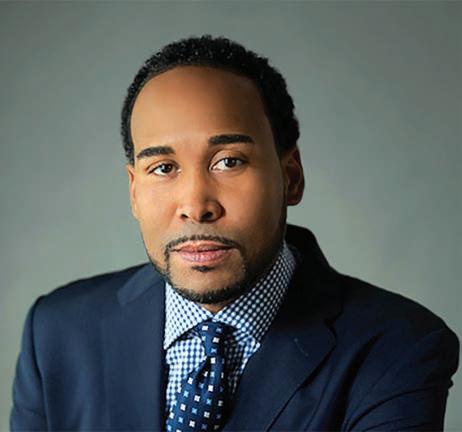
The cultural and historical myopia inherent in the term “coming out” can minimize the complicated relationship between pride, visibility, and safety for LGBTQ people within communities of color.
“It is often challenging to be heard, seen, and ust simply listened to as a LGBTQ+ person, but when you add on being a person of color, that challenge becomes much more unique and saturated. We are inherently udged, not given credibility to our own life stories and further pushed into the margins and often cannot take or retain the power in the who, when, and how we dis close our identity,” Bush said.
When talking about coming out, ohns, who identifies as same gender loving SGL , prefers the term “inviting in.”
“The process of inviting in is a term that we use to sort of shift power and highlight the problematic nature of coming out, while also acknowledging and sometimes celebrating,” ohns said.
“Inviting in” signifies that, “no one is entitled to infor mation about the lived experiences of other people that are not voluntarily offered up.”
And “inviting in” reallocates the individual responsi bility of “coming out” and challenges the heteronorma tive expectation that LGBTQ or SGL people should be required to “out” themselves.
The idea of “inviting in” instead of “coming out” for communities of color also intersects with very real safe ty concerns for many in the community, given the cur rent political climate, the widespread escalation of an ti-LGBTQ threats online and attacks on members of the community and providers of trans-affirming healthcare
across the country.
“The fact that our lives are dynamic and we face mo ments, sometimes daily, where we’re forced to think about inviting people in and often have to consider safety, especially now in this current political environ ment, is often missed,” ohns said.
For people of color living at the intersection of mul tiple marginalized identities, “coming out” can be even more dangerous because of heightened safety issues specific to communities of color.
our reliance on Black Christianity for our community, our safety and our growth and development, has been det rimental to LGBTQ folks of color, specifically Black folks.”
Religious homophobia and transphobia complicate the coming out narrative for many queer people. Elle Moxley, a Black trans woman and founder and executive director of the Marsha . ohnson Institute, has experi enced the harms of religious homophobia and trans phobia firsthand.
“I didn’t necessarily, as a Black person, feel comfort able coming out or aligning with any rhetoric around that because a lot of times people are forced out,” Mox ley said. “In my experience, growing up as a child in the COGIC Church of God in Christ religion, there wasn’t an invitation to come out. I was forced out at 1 years old.”
While queer people have always existed, there is an intentional erasure of gay, trans, and non-binary people within Christianity that stems from colonialism.
The visibility of queer sexuality in Black culture can be traced back to the Harlem Renaissance, where literature and music were full of stories about lived queer experi ences. And non-binary identities have always been visi ble and integrated in some communities of color like in North American Indigenous cultures and acific Island cultures. Terms like “fa’afafine” in Samoa and “m h ” in Hawai’i are used to signify that someone identifies as non-binary or “third gender” .
In LGBTQ communities today, the idea that “coming out” means being more free to openly be yourself in public often elides the very real danger of visibility in trans lives of color.
“Black and brown humans have always had to fight for our freedoms,” Bush said. “Coming out can be a pres sured, intense, repressive and oppressive ourney that may not allow a person to feel the freedom to choose in viting in versus coming out. In addition, persons of color also exponentially experience various levels of trauma. Coming out can be an extra layer of repetitive trauma and abuse.”
In LGBTQ communities of color, interpersonal and re ligious violence and parental or familial responses are some of the traumas community members can face.
A Williams Institute study about parental acceptance of LGBTQ identities across different age groups found that parents gave invalidating responses to their child’s sexual identity across all age groups, and parents of children in younger age groups referred to coming out as “ ust a phase” or something the child was “too young to know about.”
Religion is often used to invalidate marginalized sexu al and gender identities in communities of color.
Dr. Sydney Lewis, a lecturer in the Harriet Tubman De partment of Women, Gender, and Sexuality Studies at the niversity of Maryland, College ark, attributes this negative religious response to Christianity.
“Many Christian churches have a history of being ho mophobic and transphobic,” Lewis said. “And I think that
“There’s this idea that visibility somehow equals great er freedom, but for some people, visibility equals great er danger,” Lewis said.
The Human Rights Campaign reports that 1 trans people have been killed so far this year, while a Williams Institute study found that transgender people are four times more likely than cisgender people to be victims of violent crime.
On a day like National Coming Out Day, which is thought to not only symbolize pride but also inclusion, people like Elle Moxley are asking not for inclusion, but equity.
“I always say that inclusion is something that hap pened after the fact. I don’t subscribe to that,” Moxley said. “But what I do subscribe to is that reparations are an essential part to how equity in society happens.”
eople like David ohns are also calling attention to how complicated a celebration like National Coming Out Day can be for LGBTQ communities of color.
“For the Black trans woman with a disability in ack son, Miss., or my parents’ state of Texas, given the posi tion that those governors have them in, it probably is not safe for them to come out even on a day we’re raising awareness as a part of a goal,” ohns said.
Editor’s note: This story is part of a new Blade Foun dation initiative focusing on the intersection between race and LGBTQ identities. It is funded by a grant from the Leonard-Litz Foundation.)
(
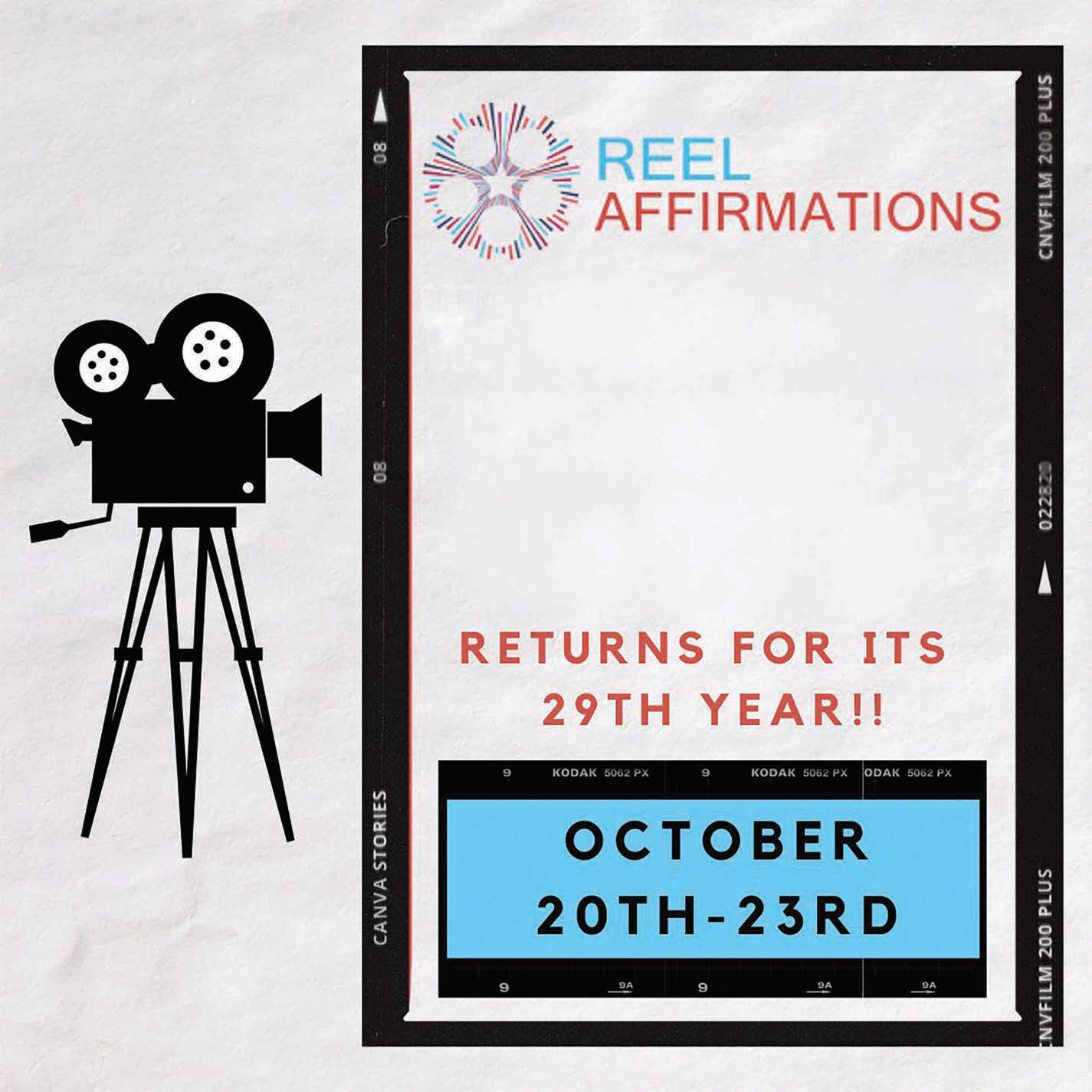
Cody Keenan, director of speechwriting for President Obama, had a prominent vantage point in the White House during an eventful 10 days that included recovery from a violent memory underscoring lingering issues with racism.
Those 10 days, which saw the U.S. Supreme Court ruling in favor of same-sex marriage and upholding Obamacare as well as Obama’s speech in the aftermath of a racist shooting at a Black church in Charleston, are now encap sulated in his new book, “Grace: Barack Obama and Ten Days in the Battle for America.”
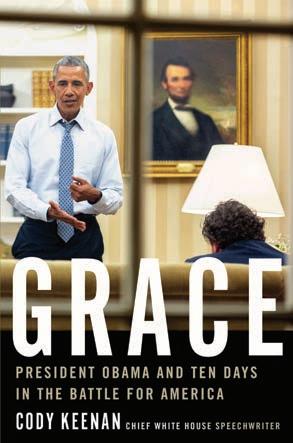
The Washington Blade spoke with Keenan about his book in an interview on Tuesday that includes an exchange the author and this reporter shared from different perspec tives during Obama’s speech in the Rose Garden after the Supreme Court’s ruling for same-sex marriage.
Read the full interview below: Blade: Why was the time now for this book?
Cody Keenan: There’s a couple of reasons for that. No. 1 is sort of technical. I was still working for President Obama up until the beginning of 2021. And so I didn’t feel appro priate to start writing a book that’s largely about him as long as he was paying me. So that’s the technical answer.
The other is I’d just been rolling these 10 days around in my head for a while. You know, it doesn’t coalesce all at once. You don’t wake up in the morning after marriage equality and Charleston and say, “OK, I’m going to write a book.” It really took the Trump years to actually crystallize it in my head because suddenly we were living through the opposite. We come through this kind of amazing 10-day burst of progress. That, of course, is not limited to 10 days. It was a result of decades of effort, and then the backlash to it. It makes it seem all that more sharp.
Blade: I think our viewers are going to be very interest ed in the discussion on the marriage ruling and the po tential outcomes that you depict in the book. Looks like there was a lot of anxiety behind closed doors about the decision as well as the possible decision on the Afford able Care Act. Do you think that anxiety was shared by President Obama?
Cody Keenan: I’ll never know for certain. He didn’t show his hand like that. He never looked at the drafts we wrote the kind of ‘in case of emergency break glass’ drafts. He just he never did. Not on election nights, not on Supreme Court rulings. It’s not that he’s cocky, he was confident. I think it was more confident in the ACA decision because he knew that it shouldn’t have been there in the first place.
So, I don’t so I don’t know how he felt about the marriage equality ruling coming in. I know how he felt about it after the fact. You can watch his remarks on YouTube, which are pretty extraordinary.
They were fairly short as written and then he decided to keep going, which is always interesting as a speech writer, knowing that the remarks are over. I love watching him ad lib, but when the remarks are over, and he just keeps going and there’s no runway to land that plane and that’s always a little interesting. On the page, it’s not a lot but he was really thinking as he was saying the words, as he was tying it to the countless small acts of courage with people who came out and parents who love their kids in return, peo ple who just who made this happen through decades of efforts. And then, he tied this into Bobby Kennedy, which is really exciting. So that was kind of fascinating to watch.
I’ve always thought that he was genuinely moved by the fact that America had come so far and, relatively speaking, so fast on the equal rights issue like that. … I asked him later why he ad-libbed all that and why he was talking so
slowly. He just he said he was up too late, reworking my speech, which isn’t true, because he gave it back to me like 11 p.m. But no, I think he was genuinely proud of the country, and then a whole lot of people at that point.
Blade: Yeah, I remember that day very well because I was actually right in front of Obama as he was giving those remarks. I’m a White House reporter, so I wanted to be able to see these remarks frsthand. I was at the Supreme Court and I rushed back to the White House. I actually missed the call time just by ever so slightly but a when the White House staffer saw me there, she escorted me to the Rose Garden. And I was seated there, then press saw me there and they knew how important it was to me so they allowed me to take the seat in the front row where normally the major news stations sit. I was a few feet away from Obama, as he was saying those words.
Keenan: Oh wow. Well, this isn’t a two-way interview, ob viously, but I’d be very curious afterwards as to how you were feeling that morning before and then.
Blade: For me, it was a very surreal and very powerful experience to have this issue that has been a really im portant issue for so many people, and really animated my work for so long, to more or less reach its conclusion. And one thing that really stood out to me was it just seems to me like when I was writing about marriage equality, it was really of interest to a certain group of people and other people really weren’t that interested. But on that day, it was a reminder that that wasn’t the case. Because remember, President Obama gave his remarks and then the entire White House staff circled around the perimeter of the Rose Garden and gave applause and it was just it was very touching, very moving. I don’t think they did that for the ACA speech. It struck me just how powerful it was because people wanted to embrace that decision with that reaction.
Keenan: The difference there is that we had — this is who people are, we had so many colleagues that — I just dread ed the idea of having to look a colleague in the eye or a friend had it gone the other way. There was anxiety and we were also relieved and excited that it went the right way. There was anxiety that morning. I guess I can always speak for myself, but as a Democrat and as a Chicago sports fan, I am never satisfied until it’s over I’m always hopeful we’re gonna win, but I don’t ever expect. So until that really came down, I was pretty anxious for sure.
Blade: Was there anything during that speech that sur prised you. I think you said Obama said a few things you didn’t think he was going to say but just anything that otherwise happened that just really opened your eyes on that either after the ruling or in his remarks?
Kennan: The remarks didn’t surprise me…I just thought it was so interesting that he kept going. He always gave long speeches, but for a speech to be over on paper and for him to not want to stop. You know, he didn’t want to stop and just wanted to say more, and I thought that was so fascinating and awesome and exciting, and then ob viously five minutes after that we need to head down to Charleston.
Blade: I do want to ask you about Charleston, but one thing I want to ask you about was that was the night that the White House was lit up in rainbow colors. And I’m just wondering if you were part of the discussion, if you aware of that, if you remember your reaction to that?
Keenan: I was not a part of the discussion. I didn’t know what was going to happen until that morning or the morn ing after, I can’t remember. We were on the Rose Garden for the remarks, and Denis McDonough came up and told
me, “God, that’s cool.” It’s one of those things where you wish you thought of it because it seems so obvious. I’ve talked to a lot of people for this book. I talked to Jeff Tiller and Tina Tchen. [Jeff Tiller was an Obama White House LGBTQ media li aison.] And one of the coolest things Jeff told me was he was the one that kind of spear headed this whole thing and found funding for it, found quotes from contrac tors and was out there kind of tearing his hair out when the lights weren’t necessarily working.
But the coolest thing he said is they were talking about what to do if the Supreme Court ruled the other way. Do they light it up? And Jeff said, “Yeah, it’s even more import ant then.”
Blade: That’s defnitely something that was planned for. I was really surprised at how they were able to keep it under wraps for so long. It was a surprise to everyone I think.
Keenan The only bummer is that Obama was gonna y around the front of the White House on Maine One to look at it. But I don’t think anybody remembered this was like the longest week of the year daylight-wise. So we’ve been back for maybe two hours before it actually started, before colors actually started getting visible.
Blade: So on the Charleston speech, a much more som ber moment, do you think having the nation’s frst Black president at the time offered us something unique in that moment?
Keenan Sure. I talk a lot about how difficult it was to write about race just because we haven’t all lived the same experiences. It may have actually been more difficult to write that speech had it been for a white president to de liver. The fact that a Black president gave that eulogy was pretty remarkable. It’s not just that he is a walking sign of progress and change, and a lot of people didn’t like that, hence some of the backlash we’re living in now.
….He can speak to race and the possibilities of reconcil iation and change, I think, more so than a white president could have in that moment. It’d be easy for a white pres ident to just condemn it, but for a Black president to go up and find the words is easier symbolically. It might have been more difficult on the page. I really don’t know. But it was a quintessential hit, what he did to the text, using the lyrics to Amazing Grace to kind of create the space for people to change their minds, the space for people to — the whole song was written by a slave owner who changed his ways, to repent. And it’s sort of the same thing, if any thing’s ever going to wake us up to the long legacy of racism and to what gun violence is doing, that’s what the Confederate ag means to some people. It has to be this. So in some ways, I don’t know the answer as to whether it be easier or harder, but he did bring something unique to it just by virtue of his experience.












(Editor’s note: International News Editor Michael K. Lavers will be on assignment in Brazil through Oct. 11.)
S O A LO One of the two transgender women who won a seat in the Brazilian Congress in the coun try’s Oct. 2 elections described her election as an “im portant step for democracy.”
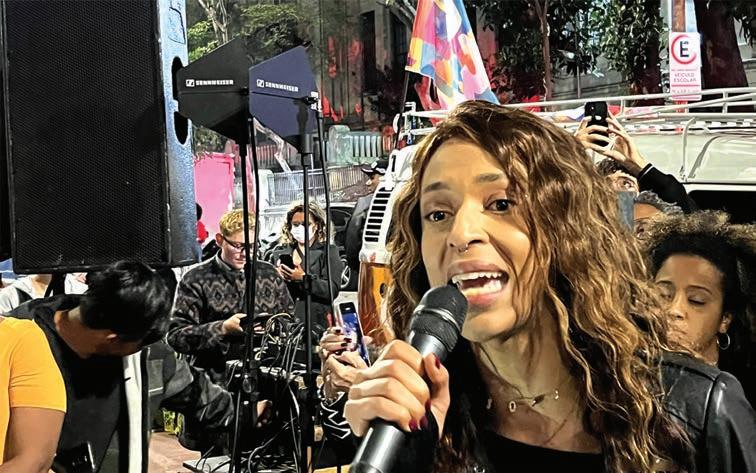
“I am very happy,” Congresswoman-elect Erika Hilton told the Washington Blade after she spoke at a rally in support of former Brazilian resident Luiz In cio Lula da Silva in S o aulo’s ra a Roosevelt. “We have a history of (lacking) resources and a great need to occupy spac es. This election shows that we plan to make a different history through what we have lived up until this point.”
“I am confident,” added Hilton. “I am worried.”
Hilton, , is a Black travesti and former sex worker who won a seat on the S o aulo Municipal Council in 2016. The member of the leftist Socialism and Liberty arty is among the 10 congressional candidates in S o aulo state who received the most votes on Oct. .
Belo Horizonte Municipal Councilwoman Duda Sal abert, who is a member of the leftist Democratic Labor arty, also won her congressional race in Minas Gerais state. Salabert in a video she posted to her Twitter ac count noted she received the highest number of votes of any congressional candidate in her state’s history.
Salabert and Hilton are two of the 18 openly LGBTQ candidates who won their respective races.
resident air Bolsonaro, a former Brazilian Army captain who is a member of the right-wing Liberal ar ty, will face off against Da Silva, a member of the leftist Workers’ arty who was Brazil’s president from 00010, in an Oct. 0 runoff.
Bolsonaro has faced sharp criticism because of his rhetoric against LGBTQ and intersex Brazilians, women, people of African and indigenous descent and other groups.
The incumbent president, among other things, has expressed his opposition to “gender ideology” and condemned a 01 Brazilian Supreme Court ruling that criminalized homophobia and transphobia.
Discrimination and violence based on gender iden tity remains commonplace in Brazil, and a Brazilian
rights group known by the acronym ANTRA, earlier this year told the Blade that efforts to combat violence against LGBTQ and intersex Brazilians have become more difficult because Bolsonaro is “propagating vio lence against LGBTQ people every day.”
Hilton acknowledged she worries about her safety. A security guard stood a few feet away from her while she spoke with the Blade.
“I am afraid, but I think that this fear is not going to be able to stop me,” said Hilton. “It is the fuel that mo tivates me.”
She also said she considers herself a role model for trans and trasvesti Brazilians.
“It is a big responsibility … but I feel very honored,” said Hilton. “I very much like to be able to be a rep resentative for my people, and the more than 250,000 people who voted for me have confidence in me. This demonstrates that our work has the po tential to have a gi gantic reach; where we can advance ef forts to end death, poverty, misery, genocide that we have.”
Bolsonaro ahead of the Oct. 2 elec tions sought to dis credit Brazil’s elec toral system.
The Associated ress notes Bolson aro’s party gained seats in the Con gress’ lower house, and ice resident Hamilton Mourão is among the Liberal arty members who won their Senate races. Concerns that violence could erupt in the country if Bolsonaro loses to Da Silva on Oct. 0 and refuses to accept the results remain.
Hilton told the Blade that Da Silva represents “de mocracy” and Bolsonaro is “the advance of fascism, the negation of rights.”
“We have endured horrors over the last four years because the current Brazilian head of state has been a very, very dangerous thing, which has been misery, which has been the dismantling of policies,” said Hil ton, referring to Bolsonaro. “It is therefore necessary that Lula wins.”
MICHAEL K. LAVERSDespite strong opposition from the power ful Serbian Orthodox Church in Montenegro joined by pro-Serbian, self-styled traditional values and family officials, Montenegro ride was held with more than 500 people in atten dance marching Saturday.
Montenegro’s 10th annual ride event in this extremely conservative Balkan country was dubbed “No more buts,” re ecting de mands from LGBTQ activists that more be done to stem hate speech and harassment of the nation’s LGBTQ community despite huge steps that have been made in the past years oice of America reported.
Support for the Montenegrin LGBTQ com munity was also expressed by the U.S. Embas sy in odgorica, the country’s capital, which
tweeted “In honor of Montenegro ride and the LGBTQI community in Montenegro the U.S. Embassy is illuminated with the rainbow colors Happy ride nemaviseali
“We gathered here for the 10th time to show we are human, (that we are) live beings made of esh and blood, wishes and dreams, but rejected and ignored, discriminated and trampled upon because of love,” LGBTQ+/ human rights activist Stasa Bastrica told oice of America.
The country’s government and elected offi cials have backed ride events in recent years and approved same-sex partnerships in 2020 as the country seeks membership in the Eu ropean Union.
Bastrica pointed out while speaking with a
reporter from OA, the church and other con servative forces in Montenegro have fueled hatred against LGBTQ community by “mak ing us the main enemy of the majority and … insanely blaming us for the disappearance of marriage, family (values) and sometimes nat ural disasters, and all in the name of God.”
Another activist, Dani el Kalezic, said Oct. Serbian Orthodox church-led gathering op posing the ride march and LGBTQ rights in general illustrated the divisions in Montene gro. He insisted that the LGBTQ community will not give up their demands.
“We don’t want them officials to come here and take photos with us,” Kalezic said. “We want results. No more buts!”
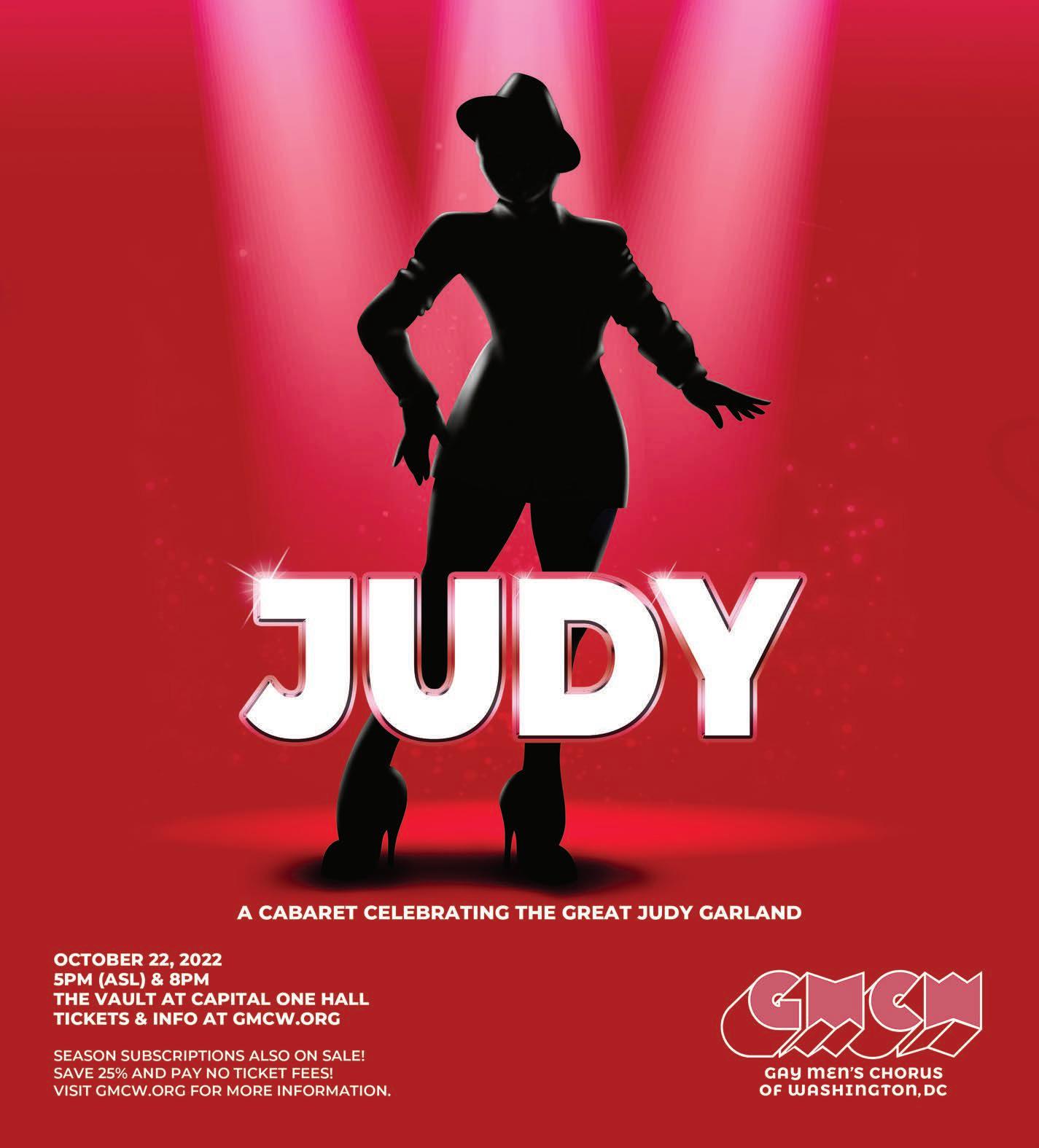
is senior youth policy analyst at DC Action and DC Youth Economic Justice and Housing Coalition.



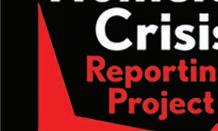


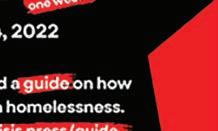

Imagine being 17 years old without a parent or guardian or a permanent place to call home when housing costs are soaring, and high in ation is driving up the cost of food and other necessities. When well-educated, financially stable Washingtonians are tightening their financial belts because of the uncertainty, it is a frightening time to be trying to figure things out on the District’s streets.
There are more than 1,300 youth experiencing homelessness in the District. And young people of color and those identifying as LGBTQ are disproportionately represented.
Casa Ruby’s closure in uly put these District youth at more risk of hate crimes, domestic violence, and sexual assault. Their displacement has made them more vulnerable to drug use and sex work to get by. Questions remain about the District’s plan to ensure continuity of care to meet their unique needs, provide mental health support, and prevent another bout of homelessness.
The closure exacerbates the current gap in services for LGBTQ youth. Beyond providing shelter, this group of young people now lacks access to the specialized, trauma-informed, and culturally competent services essential to producing positive outcomes and an opportunity to connect with mentors who understand their ourney.
The pandemic has exacerbated mental illness among youth experiencing homelessness. One-in-four report feeling down, depressed or hopeless nearly every day since the start of the pandemic. In this District, there is an equity issue.

Currently, there is a lack of accessible, youth-friendly, and culturally competent mental health care. This is a ma or barrier to long-term stability for youth experiencing homelessness in a city where the average one-bedroom apartment costs 1,800.
There is a strong link between mental illness and homelessness. People with mental illness have more difficulty sustaining stable housing and employment, which can lead to homelessness and a vicious cycle. Moreover, people experiencing homelessness encounter social exclusion, reduced access to treatment resources, stress, violence, and trauma, which can all contribute to adverse mental health, ultimately hindering their ability to overcome housing instability and mental illness.
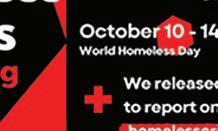

Successfully identifying and treating mental health issues youth young adults face is the key to lifelong emotional and mental well being and achieving racial equity. This is especially critical in D.C., where it is becoming increasingly difficult for well-prepared young people to become fully independent, successful adults.
We need to meet our youth where they are if we are to improve outcomes. Opening behavioral health clinics and providing services and clinics where young people congregate will help especially in addressing trauma. With famous rappers and other young people normalizing therapy, this approach will increase the use of these services and ultimately improve behavioral health outcomes among participating youth improving the District’s health overall.
The D.C. Department of Behavioral Health is currently trying to find supplemental federal money to increase support. But if Mayor Bowser, the D.C. Council, and other agency leaders fail to increase permanent mental health support for homeless youth, we must hold them accountable.
Casa Ruby is closed.



is co-founder and creative director at EVERGIB, a nomadic creative studio specializing in strategically led advertising and branding. A champion of big ideas and the power of storytelling, Rachel believes creativity can be used as a force for good to improve the world we live in.
As a Virginian, I’ve always been proud of my state’s
paign for what is now Virginia Tourism Corporation. It was created by Martin and Woltz Inc., which later evolved
Initially positioning the state as a destination for rointerpretations. With so much to experience, Virginia has become a welcoming place for history lovers, food lovers, nature lovers—all kinds of lovers. That’s the premise veloped by The Martin Agency, that launched this spring.
myself included. It’s an example of the power that emotionally driven branding can have on our psyche. In an interview earlier this year, Virginia Tourism brand direc-
offers one last welcome before the video ends, signed
On initial glance, the video might not seem like anything out of the ordinary. To many, it will come across as
But is it just a feel-good piece promoting Virginia Tourism? Or did a politician leverage my beloved state’s brand for his own personal agenda?
Certainly it’s not a novel idea that a governor might
Indeed, love is a powerful driver when it comes to perand inclusive.

to see a new Virginia Tourism video prominently featuring Republican Gov. Glenn Youngkin.
vaccination rates.
But it’s a tourism campaign involving Republican Gov.
and overall tone are entirely different. More anthemic in feel, it highlights different people speaking directly to
Dressed in a crisp white shirt, sleeves rolled up and
camera, he smiles as he introduces himself.
itself, along with where it aired and the timing of its release, gave Christie an unexpected platform to hone his brand image and gain greater exposure across key
no, said the ads gave him an unfair advantage, calling
Buono lost the election. Two years later, Christie announced his candidacy for the Republican nomination in
a statewide election in Virginia in over a decade. The forran a successful campaign by cultivating his own distinct brand, positioning himself as an enthusiastic, moderate
The video continues as Youngkin provides the voiceover for a series of lifestyle shots featuring an impressively diverse cast of characters. We’re welcomed by different types of Virginians: a long-haired surfer dude with his pals, an edgy millennial bartender serving up a cocktail, and a varied group of barbecue lovers, all ages boy exclaims.
Youngkin appears on camera again—this time in the
never Trumpers.
Youngkin immediately signed an executive order to tioned in the Virginia Department of Education’s curricu-
Continues at losangelesblade.com.








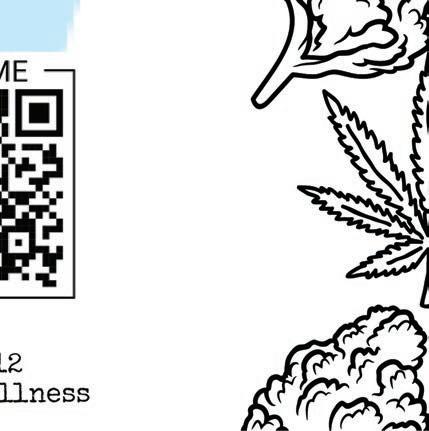
A former newspaper reporter, JAMIE MCELHATTON is a private investigator and organic grocery store worker. They live in Alexandria, Va.
is a longtime LGBTQ rights and Democratic Party activist. He writes regularly for the Blade.

When Inova opened its ride Clinic in Falls Church last year, an official hailed the new center as an inclusive space where LGBTQ+ patients would be welcomed at the door with the questions, “What are your pronouns? How do you prefer to be addressed?”
But that was not at all my experience when I visited the emergency room of an Inova hospital just a few miles away.
At Inova Alexandria Hospital, intake forms listed only two boxes — M or F — for me to be able to disclose my gender. I did not know how to answer. I am transgender. I am non-binary.
On forms and in life, it is very hard when you can’t find a box that fits you to be able to say who you are. I know this from hard experience.
So I took the intake form to the hospital intake employee who had asked me to fill it out. I pointed to the “X” marker on my gender on my driver’s license.
“The DMV has a box for me to say who I am, but Inova doesn’t,” I said.
The employee was empathetic, but told me she doesn’t make the forms and that I could refuse to answer the question. The point is, I want to be able to answer. I want to be able to say who I am. But the forms did not let me.
“If folks can’t get in the door and be called their proper name and proper pronouns and get their information collected, it doesn’t surprise me they’d be reluctant to come in the door and it doesn’t surprise me that disparities exist,” Alex Waad, health equity manager in ChristianaCare’s Office of Health Equity in Delaware, said in a telephone interview.
Waad, who could not comment on the practices of Inova or other hospitals, was part of a team of researchers at ChristianaCare and the University of Delaware who published a study after surveying dozens of hospital registrars about how they seek and record information on gender.
The researchers found, in some cases, electronic healthcare record systems just did not allow for reporting on nonbinary patients. That affects thousands of would-be patients. According to the Virginia Mercury, more than 5,000 Virginians have recorded their gender marker as nonbinary with the DMV since a 2020 law allowed the designation.
Despite large, unwieldy electronic health systems, change is possible. In January, after all, the nation’s largest healthcare provider, the Department of Veterans Affairs, announced its own medical record system would change to include transgender options for gender.
“All veterans, all people, have a basic right to be identified as they define themselves,” A Secretary Denis McDonough said at the time. “This is essential for their general well-being and overall health.”
Luckily, my bicycling accident left me scraped and sore but without any broken bones. The clinical care I received at Inova was prompt and professional. Still, a few days later, I told hospital officials about my concerns.
“Your forms have only a male and female box and solicit no information at all to indicate preferred pronouns or any trans existence at all,” I wrote in an email. “I understand it can be important from a clinical perspective to understand somebody’s (assigned) gender at birth, but it’s equally important to understand the entirety of somebody’s identity and experience.”
This goes far beyond hurt feelings. It’s about respect and accuracy. What’s more, after this sort of experience, the next time a trans person has to decide whether they will go to the hospital, they might opt to stay home instead, at a time when they could need critical and life saving care.
In response to my inquiry, a hospital spokeswoman said Inova would, indeed, be updating its forms and training across its system. More than 2 million patients visit Inova’s hospitals, primary and specialty care practices and other medical offices each year.
“We strive to provide a welcoming and safe environment for all of our patients from the moment they walk through the doors,” Inova spokeswoman Tracy Connell wrote in an email.
Connell also said the nonprofit health system had updated its patient electronic medical records EMR back in 0 0 to let patients note their affirming gender identity, along with pronouns, legal sex, sex assigned at birth and other inclusive values.
However, she added, “unfortunately, our paper forms do not yet align with our EMR.”
This news of updated, inclusive forms is welcome, if belated.
I asked Connell to send me a copy of any new intake forms, and I’ll be sure to follow up when that happens.
In the meantime, slow down motorists and keep a watchful eye for bicyclists, because I’m not looking to return to the ER anytime soon.
Contrary to what a Democratic Socialist says, Ward 3 D.C. Council member Mary Cheh is not racist because she questioned part of the bill allowing non-citizens in D.C. to vote. Neither am I because I also question the bill.
I share the same question Cheh has and agree with her response to a comment reported in the Washington Post, where Abel Amene, an organizer with the Metro D.C. Democratic Socialists of America said, “Cheh’s ‘questions’ are rooted in age-old xenophobia and racism.” He is wrong and Cheh is right when she responded, “Throwing around a racist label is meant to stop discussion, not advance it.”
The Hill reported Cheh said, “This bill is eminently supportable, except for one aspect about it. I asked this question of the committee as a whole: Could someone who took the bus from Texas, or was put on the bus from Texas, or wherever, and dropped off at the vice president’s property, and then remained in the District of Columbia for 30 days and was 18 years old — could that person then vote in our local elections? And the answer was yes.” I have many more questions than Cheh about the bill.
The bill apparently says any person in D.C. who is not a citizen can vote if they meet the other requirements for voting that U.S. citizens must now meet. Currently the requirements listed on the DC voter registration form are: Be a United States citizen; be a resident of the District of Columbia; maintain residency in the District of Columbia for at least 30 days prior to the election in which you intend to vote; not claim voting residence or the right to vote in another U.S. state or territory; be at least 17 years old; not have been found by a court to be legally incompetent to vote.
Based on these requirements if you simply remove the first, being a .S. citizen, all you really need to vote is being in D.C. for 30 days, legally or illegally. So, I agree with Cheh that her question needs a different answer. Here are my other questions. Does this bill if passed mean any visitor to the U.S. who spends 30 days in D.C., on a 60-day visitor’s visa, can vote? Can those on a student visa vote? Can those from countries under the visa waiver program, who remain in D.C. for the 30-day requirement, and who can only remain in the United States for 90 days, including travelers from almost all the countries of the European Union, but as well for travelers from Australia, New Zealand, Chile, Japan, San Moreno, Singapore, South Korea, Taiwan and the U.K, all get to vote in D.C. elections if they stay here for 30 days?
Some may consider me a dinosaur still believing one of the most basic rights you get with citizenship is the right to vote. Citizenship comes with five basic rights. Those rights are: the right to worship religion in a free setting; right to vote freely in public and open elections; right to free and unperturbed media; right to a fair trial; right to freedom of speech and expression. I would venture to say we should try to give all immigrants, including those currently crossing our borders illegally and looking for asylum, and visitors, four of those rights. Now the D.C. Council wants to add the right to vote.
I am in principle not opposed to the concept of this bill, but within limits. There would seem to be good reason to give long-term non-citizens, who live and work in the District, a right to vote locally. One group that should definitely have that right are those in the Deferred Action for Childhood Arrivals DACA program. Another group could be those who are living full-time in the District for at least a year, and not on any temporary visa status. Green Card holders who are here for more than a year with the right to work could be included.
But this bill should not be open-ended, which it seems to be now. I would assume most people in the District have only recently heard about this bill and not really had a chance to digest what it means. Then there is another question I am not sure the bill addresses: Will these individuals with the new right to vote be allowed to donate to the campaigns of those they support? Will we allow them to get fully involved in the political process?
I would urge the Council to consider and answer all these questions for the public before giving final approval to this bill.
D.C. bill allowing anyone to vote needs more discussion
Mary Cheh is not a racist for expressing legitimate concerns
My visit to Inova hospital marred by binary intake form ‘M’ or ‘F’ excludes trans, non-binary patients from affirming care





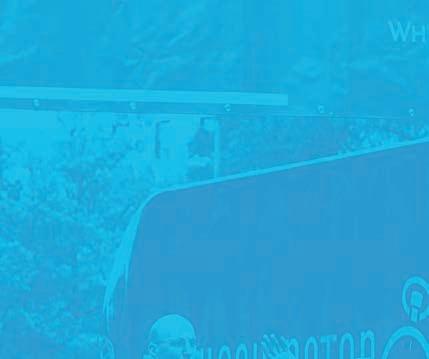








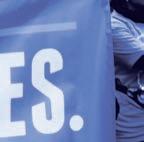















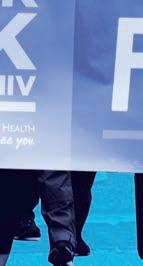












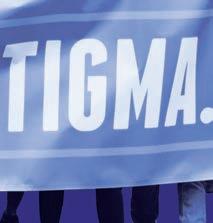


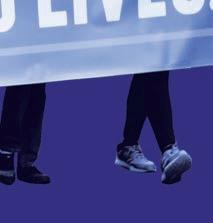












provocative and compelling slate of movies screening this week
By MARGARET SCALAClear your schedules Washington’s International LGBTQ Film Festival, Reel Affirmations, is returning for its 29th year of screenings on Oct. 20.
The festival will be held at the E Street Cinema, 555 11th St. N.W., from Oct. 0- . Within the four-day-long span of festivities, there will be 1 feature-length films from nine countries, and additional short films being streamed exclusively online.

Reel Affirmations has been screening movies that feature and support members of the LGBTQ community since 1 1. The pandemic didn’t slow them down at all, as they received hundreds of films in 0 1 and had to make the difficult choice of how to narrow them down to roughly 5. Out of those 5 films being shown, seven awards will be handed out to deserving participants. Those awards include the Grand ury Award for Best Narrative Feature, the Grand ury Award for Best Documentary Feature, and Audience Award for Best Documentary Feature.
Notable films have remained a staple in Reel Affirmation’s lineup since its conception. Among films that have been screened there have been Academy Award-winning and nominated films, like “Moonlight,” and films that tell stories that create a bond between LGBTQ individuals. Some of those being featured this year include “ LookAtMe,” a film from Singapore about social media, religion, and activism “Our Bodies are Beautiful,” from Argentina, addressing feminism, identity, and trans women and “When Time Got Louder,” portraying the altering of family relationships after sexual awareness creates independence for LGBTQ members of the family.
“Filmmakers pushed the envelope to explore and celebrate LGBTQ stories long before television dared to mention taboo topics, and today we continue with this tradition through film festivals around the globe dedicated to exploring and expanding our understanding of each other, with humor and compassion”, says Director of Arts Cultural rograms and Executive Director at the DC Center, Kimberley Bush.
In terms of affordability and accessibility, tickets for both in-person showings and online streaming are available. A single live screening ticket is 15 for in person, 10 for streaming, and you can bundle and save by buying three live screenings for 0 or six for 55. If you want to watch all virtual shorts, you can pay a at fee of 1 5, and if you want to watch all of the live and virtual shows, it’ll be 1 5.
Here’s the schedule for the weekend
7 p.m., “When Time Got Louder” from director Connie Cocchia
This drama runs 80 minutes and addresses the story of Abbie, a college-aged girl who leaves her family to explore her independence and sexuality. While Abbie’s away she realizes she’s torn between her love for her brother who has autism and her new life away from the family.
8 p.m., “All Man: The International Male Story” from directors Bryan Darling and Jesse Finley Reed
Gene Burkard found freedom in San Diego, away from his closeted self in the Midwest, by transforming male fashion into something cosmopolitan, trend setting, and carefree. International Male reached both gay and straight demographics, generating revenue from the refined new images of masculinity. This documentary tells the story of a band of outsiders who changed the way men looked at each other and their own image.
7 p.m., “Nelly and Nadine” from director Magnus Gertten
Two women fall in love in the Ravensbruck concentration camp in this -minute documentary. On Christmas Eve 1 , Nadine and Nelly fell in love, and despite being separated during the last few months of the war, they reunited and spend the rest of their lives together. Despite hiding their love story from most friends and family, Nelly’s granddaughter is now uncovering their remarkable story.
9 p.m., “Waking Up Dead or Look At Me” from director Terracino
The first comedy of the weekend kicks off with a bang. Hot-shot, destructive, and allaround mess Danny Maldonado was conquering Hollywood. Cut to a few years later and he’s been dumped by his boyfriend, his career has atlined, and his long-estranged mother is dying. When he’s given a second chance, Danny vows to clean up his act, but will he follow through?
12 p.m., “Smalltown Pride” from directors Riley Sparks and Chelle Turingan
Filmed in Alberta, Nova Scotia, this documentary depicts the struggles and oys of growing up queer in a small town. The crew follows a group of LGBTQ individuals and allies as they prepare for their local ride celebrations. Meeting in church basements, various kitchen tables, and some classrooms, the group prepares to take on a conservative town council that won’t even y a rainbow ag. By working together they aim to create a mutual love and acceptance between everyone in their community.
2 p.m., “Maybe Someday,” from director Michelle Ehlen

A non-binary photographer in their 0s attempts to move across the country to start their life over again during their separation from their wife. In this 1-minute comedy, ay, the photographer, takes a detour to see their high school best friend and former crush . Throughout the film ay struggles with the cycles of love, loss, and letting go. 4 p.m., “Pat Rocco Dared,” from director Charlie David
This documentary reclaims the story of the “King of the Nudies,” at Rocco, and shows how Rocco is much more than his erotic filmmaking career he’s the whole Hollywood package.
6 p.m., “Prognosis – notes on living,” from directors Debra Chasnoff and Kate Stilley Steine
Oscar-winning filmmaker Debra Chasnoff steps in front of the camera in this 80-minute documentary about her struggle with a deadly diagnosis. Emotionally raw, funny, and profoundly intimate and the key elements to her story about life and letting go. 8 p.m., “Manscaping,” from director Broderick Fox
A Black American visual artist, Australian fetish barber porn producer, and transgender Canadian barber are followed in this documentary detailing the reinvention of the traditional barbershop and restyling masculinity.
9:30 p.m., “Blessed Boys,” from director Silvia Brunelli
Two 18-year-old friends, Milo and Lino, were raised in the same small town for their entire lives, never stepping outside the comforts of their hometowns. That is, until Lino’s little sister claims to be a saint and miracle-worker, and Milo takes a step back to revaluate his routine life, and his feelings for Lino.
12 p.m., “A Run For More,” from director Ray Whitehouse
This documentary follows the first openly elected transgender official in Texas. Frankie Gonzales-Wolfe finds her voice, questions her relationship to the community, and tries to win an election in this film, shot over four years.
p.m., ur Bodies re our Battlefeld, rom director Isabelle olas
This Argentinean documentary follows the lives of Claudia and Violeta, trans women who identify as transvestites in the deep divide of feminist Argentineans and conservatives. They find themselves in the center of this socio-political revolution, and present their fight to love and stay alive.
4 p.m., “Being Thunder” from director Stephanie Lamorre
This documentary follows Sherente, a two spirit-genderqueer teenager from Rhode Island’s Narragansett tribe. Sherente performs in traditional dance competitions at regional pow-wows. Sherente wears traditional female dresses, but behind the scenes the tribal leaders manipulate the scores or disqualify him, ust because of their beliefs in traditional gender roles.
6 p.m., “#LookAtMe,” from director Ken Kwek
Teenagers Rocky and Sean are invited to church with Sean’s girlfriend. When they arrive they are hit with a searing anti-LGBTQ sermon. Sean, a ouTuber, posts a video criticizing the pastor, and lands himself in the public eye of Singapore’s strict public expression laws. While he remains in prison, his gay twin brother Ricky makes a name for himself as a prominent LGBTQ activist.




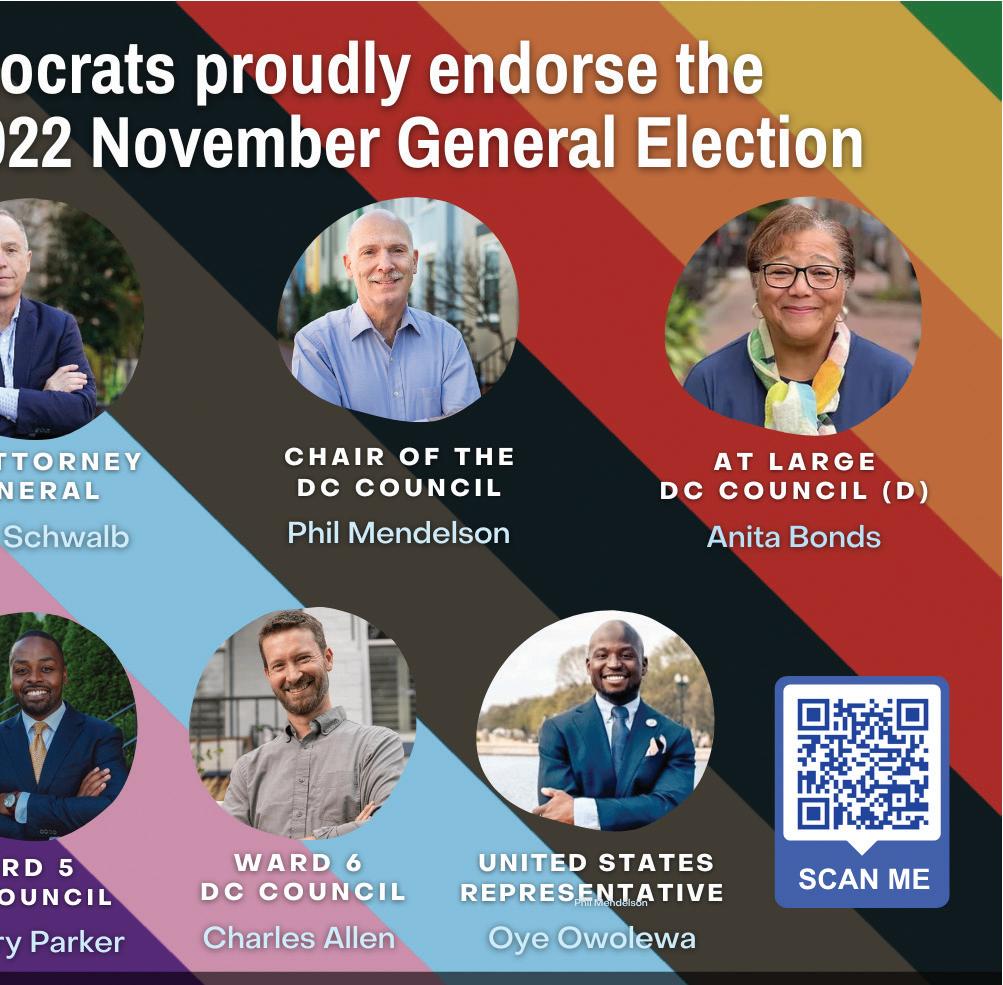
Center Aging Friday Tea Time will be at 2 p.m. on Zoom. This is a social hour for older LGBTQ adults. Guests are encouraged to bring a beverage of choice. For more details,
Women in their Twenties and Thirties will be at 8 p.m. at the DC Center for the LGBT Community and online on Zoom. This is a social discussion group for queer women in the D.C. area. For more information, visit the group’s closed Facebook group.
Virtual Yoga Class with Charles M. will be at 12 p.m. online. This is a free weekly class focusing on yoga, breathwork, and meditation. Guests are encouraged to RSVP on the DC Center’s website, providing their name, email address, and zip code, along with any questions they may have. The link to the class will be sent out at 6 p.m. the day before the event.
Freeballers Queer Cabaret will be at 6:30 p.m. at As You Are Bar. There will be more than 10 local queer performers including drag queens, DJs, pole dancers, musicians, burlesque performers, acrobats, comedians and more. Tickets start at
LGBTQ People of Color Support Group will be at 1 p.m. on Zoom. This peer support group is an outlet for LGBTQ People of Color to come together and talk about anything affecting them in a space that strives to be safe and judgment-free. For more information, email supportdesk@thedccenter.org.
Dumbarton UMC Homecoming will be at 10 a.m. at Dumbarton United Methodist Church. Dumbarton UMC will be celebrating its 250th anniversary and former members are encouraged to return for worship and a potluck. This event is
GoGay DC will host “LGBTQ+ Coffee + Conversation” at 12 p.m. at As You Are. This event is for those looking to make more friends in the LGBTQ community and trying to meet some new faces after two years of the pandemic. This event is
Center Aging Monday Coffee and Conversation will be at 10 a.m. on Zoom. LGBT Older Adults — and friends — are invited to enjoy friendly conversations and to discuss any issues you might be dealing with. For more information, visit the
Genderqueer DC will be at 7 p.m. on Zoom. This is a support group for people who identify outside of the gender know that you’re not 100% cis. For more information, email
Not Another Drag Show will be at 8 p.m. at Dupont Italian Kitchen. Logan Stone will host; there will also be a rotating cast of local DMV performers. This event is free and more de-
By TINASHE CHINGARANDEBi Roundtable Discussion will be at 7 p.m. on Zoom. This is an opportunity for people to gather to discuss issues related to bisexuality or as bi individuals in a private setting. For more
Job Club will be at 6 p.m. on Zoom. This is a weekly job support program to help job entrants and seekers, including
tion, resilience and productivity for effective job searches and networking — allowing participants to move away from being merely “applicants” toward being “candidates.” For more information, email centercareers@thedccenter.org or visit www.
BookMen DC will be at 7:30 p.m. on Zoom. This is an infor-
gay literature. For more details, visit BookMen’s website.
The DC Center’s Food Pantry Program will be held all day at the DC Center for the LGBT Community. To be fair with who is receiving boxes, the program is moving to a lottery system. People will be informed on Wednesday at 5 p.m. if they are picked to receive a produce box. No proof of residency or income is required. For more information, email supportdesk@
Poly Group Discussion will be at 7 p.m. on Zoom. This group is designed to be a forum for people at all different stages to discuss polyamory and other consensual non-monogamous relationships. For more information, email supportdesk@ thedccenter.org.
The DC Public Library, Little District Books, and the Rainbow History Project are joining forces to host “Secret City - An evening with Jamie Kirchick” on Thursday, Oct. 20 at 6:30 p.m. at Southwest Neighborhood Library. Paul Smith of Georgetown University will moderate.
Kirchick will discuss his history of gay people in D.C. and the federal government. Following the conversation, he will answer questions from the audience and sign books. Copies of the book will be available for purchase from Little
For more details about this event, visit the
Free State Justice will host its annual Jazz Brunch on Saturday, Oct. 15 at 1 p.m. at Guilorganization since its former executive director resigned after accusing the board of racism.
Tickets start at $80 and can be purchased on
CAMP Rehoboth will host its 2022 Block Party on Sunday, Oct. 16 at 11 a.m. on the second block of Baltimore Avenue in Rehoboth Beach, Del. The event has suffered cancellations in recent years due to COVID and bad weather, but this weekend’s weather looks perfect.

There will be local restaurants, caterers, en-
ganizations exhibiting. Performers will include the CAMP Rehoboth Chorus Ensemble, actors from Clear Space Theatre, and renowned drag queens Tamia Mykles, Roxy Overbrooke, and
For more details, visit Camp Rehoboth’s website.
Casting nonbinary actor Gabriel Hernandez as the young Abraham Lincoln in the world premiere of chamber opera “Forever Yours, Lincoln,” at Quarry Theatre in Baltimore, was a smart move.
At about six feet tall with a mop of dark hair, Her nandez isn’t quite as tall as Lincoln, but the Puerto Rican-American tenor has worked hard to bring to life the revered, lanky president.
“I never thought about looking like Lincoln until the process of play ing him began,” says Hernandez, 32. “When I got the offer, I began looking at pics of him and wonder ing how I could embody him bet ter. I discovered that how you move your face makes a difference when playing a historical figure. And somehow, it seems to have worked.”
An exploration of the president’s intimate male relation ships, the work opens a conversation about what constitutes intimacy, romance, and friendship.
With music by Baltimore composer Patrick Alexander and book by Alexander and co-librettist Laura Holland, the 50-min ute fully produced piece incorporates a compilation of orig inal text, historical first-person accounts, letters and poetry by Lincoln, and poetry by Walt Whitman and Lord Byron. The work aims to spark discussions around the history of sexuali ty, American revisionist history, and the importance of LGBTQ visibility.
Onstage, Hernandez typically presents as a young masculine man, especially when not wearing a dress, they say. “It’s hard to wrestle with how people see you and how you see yourself. That’s a big question. I really identify as gender queer and I’ve used many pronouns.”
“But when standing before an audience that’s work; it’s a way to make money. I’m aware that people might see me differently than how I perceive myself. I have to be patient with that.”
Hernandez has long been aware of Lincoln being intimate with men. “I’m not sure how I heard, the Internet, probably. As a young queer person, you’re always trying to find anything that’s relatable or someone to could look up to. Once I heard about Lincoln, I held on to it.”
And when they first learned about the opera, Hernandez was eager to get the part. “Despite historians trying to sepa rate historical figures from their human experience, sometimes we know they’re like us. To me, if Lincoln were alive today, I’m certain he’d a be a queer person.”
The opera’s text is taken most ly from Lincoln’s correspondence. “From his words,” says Hernandez, “you can tell he’s passionate and honest. He ex presses some jeal ousy and sadness when he learns his close friend Joshua Speed is marrying though married him self. Lincoln and his male friends shared beds; but what’s more, they experienced things we perceive as romantic.”
Zachary Bryant sings the parts of Speed and other historic friends/love interests including David Derickson, Billy Greene, and Elmer Ellsworth. The Biographer, a non-singing role is played by D.C. actor Joshua Poole
Based in New York, Hernandez has been in been in collabo ration with queer community members in the area. In the fall of 2021, they premiered their well-reviewed new project “Taking Up Space: Queer Identity in Opera,” a photo series dedicated to documenting queer experience in opera by juxtaposing the past and present.
They’ve been performing since elementary school: “My par ents saw me dancing in the outfield when they put me in soft ball and knew it wasn’t for me. They’d both grown up in the Pentecostal church and didn’t want me to have that limiting experience. Soon they’d enrolled me in theater classes.”
After performing arts high school in Florida, they pursued singing in community college and private lessons before be coming a serious opera singer in their late 20s. Five years ago, Hernandez and husband moved to New York City.
Is “Forever Yours, Lincoln” only for opera buffs? Hernandez replies “No.”
Because Ryan Clark, a Quarry Theatre team member who stages a lot of straight theater, is directing, the piece ows quickly, they say. “And at less than an hour there’s not enough time for us to really bore the audience,” Hernandez adds with a chuckle.










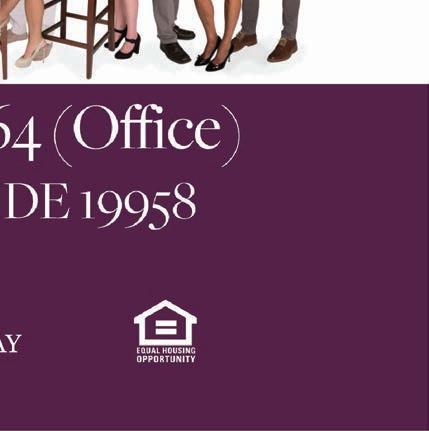










































We all know the LGBTQ community loves horror –that’s why we sometimes call Halloween “Gay Christ mas.”
The appeal of stories about monsters and other crea tures of the night should be obvious for a community of people whose very existence has been considered a threat for as long as they can remember. Yet, until re cently, the genre has been notably short on outwardly LGBTQ subject matter, leaving us to assume that our love for horror has been a one-sided affair all along.
Or has it? According to the minds behind “Queer for Fear,” a new docuseries streaming on Shudder just in time for Halloween, the genre has been actively shaped by queer sensibilities from the very start – and they’re prepared to show the receipts.
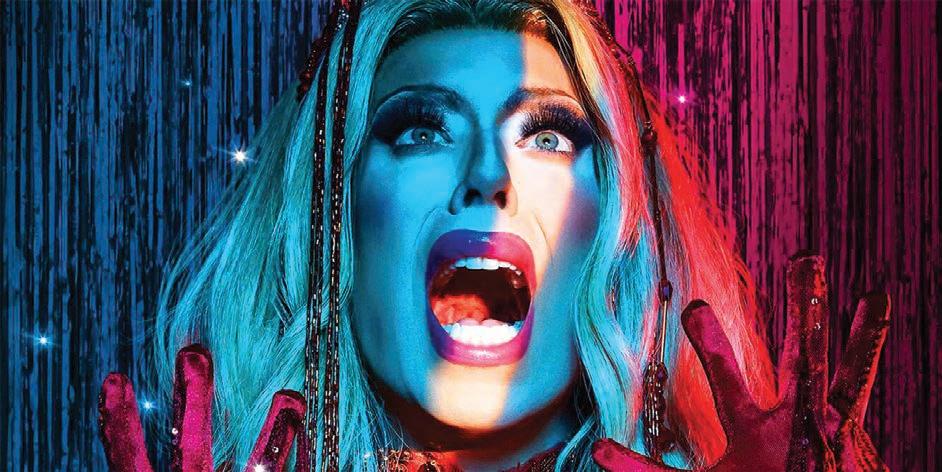
The series, which drops new episodes each Friday through October, employs an array of experts – from creators to scholars to celebrities who just happen to be fans – to peel back the surface of the genre and re veal the queer heart beating within. It maintains a fun tone, making for an enjoyable-yet-informative season al distraction; nevertheless, it takes the subject matter seriously, making clear from the very first episode that its goal is to make a thoroughly researched case for the notion that queer subtext is deliberately built into the genre from the foundation up.
Though the show’s focus is ultimately on movies, it must first pave the way by delving into the origins of horror fiction. In Episode 1, “Queer for Fear” does some sleuthing into the private lives of the 1 th century au thors whose contributions loom the largest: Mary Shel ley, who arguably spawned both the horror and science fiction genres with her hastily written “Frankenstein,” and Bram Stoker, who reinvented the image of the vampire in his only successful book, “Dracula.”
Typically interpreted as a cautionary fable about the reckless pursuit of science and technology without concern for consequences, Shelley’s audaciously trans gressive 1818 novel also serves as a philosophical ru mination on society’s conception of what is “unnatural.” Unlike the hulking monster in most versions of the story disseminated through film and other media later, in the original book Dr. Frankenstein’s creation is intelligent and eloquent, even refined, and seeks only to exist with out persecution. Needless to say, the “good doctor” not only refuses to help, but devotes himself to the crea ture’s destruction, leading readers inevitably to question which of them is actually the monster.
It’s that question that lies at the heart of every good horror story since; by evoking our “sympathy for the devil,” so to speak, classic monsters from King Kong to Hannibal Lecter become the heroes while their oppres sors – no matter how well-intentioned – mostly elicit our disdain. It’s not hard to recognize how that dynamic res onates with queer identity.
Striking perhaps even closer to home was Stoker’s 18 “Dracula,” which took the already sexually charged archetype of the vampire out of the distant hinterlands of Central Europe and transported him to London. Now the symbolic associations with queer experience be came even more apparent; deviant eroticism, a certain uidity of gender in the vampire’s choice of victims, a need to secret himself away from the world during day light – all these things and more make the vampire into a quintessentially queer monster, and Stoker’s novel burned them into the cultural imagination.
Mainstream literary scholars and historians (and by mainstream, we mean “straight”) have always been quick to caution against reading too much into such parallels, assuring us that they rise from themes with a generalized application to anyone deemed by society to be “other” and should not be interpreted as an expression of any actual queerness on the author’s part; indeed, these au thorities remind us, they would presumably have been as blind to such subtext as most of their readers, espe cially in the 1 th century. In short, queer observers who pointed to such a perspective in these works – or any other art or fiction produced before Stonewall, essential ly, and most of those produced since – have usually been told we were imagining things.
“Queer for Fear” challenges that dismissive assump tion. Turning to the personal papers of Shelley and Stoker and the obvious inferences that can be drawn from the biographical details of their lives, the series asserts that these authors – whose works have cast a more wide-reaching in uence over the evolution of hor ror than perhaps any other writer – were not only aware of the queer subtext dripping from every page of their books but were actually queer themselves. To those un used to thinking beyond the heteronormative edges of our cultural narrative, that might seem a bold statement – especially regarding Stoker, who in later life was known for his strident opposition to “indecency” (sexual and otherwise) in society.
The show’s second episode, which moves into the 20th century and examines the beginnings of horror on film, covers more generally accepted territory as it ex plores the career of gay director James Whale, whose classic queer-coded fright films of the 1 0s forged a permanent connection between horror and camp, and goes on to examine the life of famously closeted actor Anthony Perkins before and after his iconic role as a cross-dressing murderer in “Psycho.” It treads on shakier ground, however, when it implies the possibility of queer tendencies in the latter film’s director, Alfred Hitchcock – something that might seem a bit of a reach in light of his well-documented obsessions with his leading ladies, even considering that his work frequently displayed such blatant examples of queer subtext that even straight film scholars have long acknowledged them.
Unsurprisingly, one can scroll through the viewer com ments about the series on Shudder’s website and see the vehemence with which obvious homophobes have objected to the show’s conclusions; many of these cite a lack of definitive proof – which is, admittedly, a fair point. It’s hard to produce a “smoking gun” establishing the queerness of someone who lived in a time when keep ing it hidden could easily be a matter of life or death.
When the facts are laid out plainly, however, as “Queer for Fear” endeavors to do, they speak volumes in sup port of a secret LGBTQ thread running through the his tory of horror since its earliest inception – a concept that has, in fact, become widely accepted in academic circles since the advent of Queer Theory in the 0s – which was intentionally put there by artists who created a coded storytelling language that would allow them to express their queerness in a way that would be obvious to those “in the know” but invisible to everybody else. Later, of course, some of those coded elements would be twisted into problematic tropes by filmmakers who had caught on and endeavored to turn them against us (something the series will doubtless explore in upcoming episodes) – but hurtful or not, they were put there on purpose, and despite the grousing of uneducated internet trolls, hor ror has always been queer.
Still, people can’t be blamed for being oblivious to what they were never intended to notice in the first place. Now, thanks to Shudder, straight horror fans can finally school themselves about something that’s been right under their noses all along.
Shudder docuseries shows how genre has been shaped by LGBTQ sensibilities‘Queer for Fear’ examines the queer history of horror.
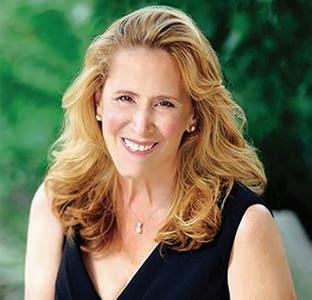











Some families manage bakeries, nurseries, or vineyards.
For Daniel Post Senning, great-great grandson of Emily Post and an Emily Post Institute co-president, and Lizzie Post, great-great granddaughter of Emily Post and an Emily Post Institute co-president, etiquette is the family business.
The Emily Post Institute, based in Waterbury, Vt., conducts seminars and trainings. It partners with businesses a wide audience,” according to its website.
When you think of etiquette, you’re likely to be trans-
dancing school lessons you hated as a kid – stuffy, rich (usually white, hetero) people at formal dinners managing a zillion salad forks – come to mind.
But, for Post and Senning, who co-host the popular, en-
as we are from being the Dowager having tea at Downton.
Emily Post, the acclaimed etiquette maven, published ness, in Politics and at Home,” in 1922.
alive, say Post and Senning.
how timely Emily Post’s advice continues to be,” Petrow,
timeless advice about respect, consideration and honesty in our social interactions, which includes those in the bedroom.”
The Institute’s response was to note how normal civil weren’t different from hetero weddings. or can’t attend.”
Post and Senning graciously took time out from their busy schedules (the launch of the
Etiquette isn’t only for happy times. It’s called on when things get rough.
as frequently as the Bible), has been revised by Post
Post’s seminal book, considered by many to be the as frequently as the Bible), has been revised by Post herself and her descendants during the past century to evolve with changing times.

zie Post and Daniel Post Senning, the 20th edition of Emily podcast and the Emily Post Institute, visit emilypost.com.) and discussion on everything in life in the early 2020s ple’s pronouns to how to get company to stop making
From the get-go, Emily Post, who was born in Baltimore in 1872 during the Gilded Age and died in 1960, didn’t
rigid code of manners; it’s simply how persons’ lives touch one another.”
If you browse some editions of Emily Post’s books (as

tives or ethereal descriptions of the etiquette gods’ mannered lives on Mount Olympus.
Emily Post painted relatable pictures of what to do and not to do, Post and Senning write.
Though Emily Post wouldn’t have known what a smart-
dence and preparedness for some of the situations you’ll encounter at home, at work, in your social life, and when you’re out and about.”
Despite claims that etiquette is dead, it is very much
me edit the book.”
Edition,” hosting their podcast – along with their other work with the Emily Post Institute) to talk with the Blade over the phone in separate interviews.
Post and Senschedules (the launch of the with their other work with the Emily Post Inwith the Blade Etiquette, The

culean labor of writing and editing for Post and Senning. It took a year to write the book, Post said. And, then there was all of the time spent to ensure that the book was carefully edited.
ill to grieving, she added. Emily Post may have written on etiquette a century ago, but her thoughts on grief ring as true on an iPad screen as they did then in a hardback book.
when we stand deserted at the brink of darkness into which our loved one has gone,” Emily Post wrote in 1922,
iquette; yet it is in the moment of deepest sorrow that etiquette performs its most vital and real service.” the smoothing of personal contracts,” Emily Post added, ing the solemn rites accorded our dead.”
Etiquette can help people grieve together in community through writing a condolence note, attending a funeral or another act of common grief, Lizzie Post said.
If you’ve suffered a loss, it can be incredible to realize the impact a loved one has had when you receive condolence notes or see so many people at a memorial service.
There’s a new trend where you can take part in the grief without going to a funeral, Post, who lives in her native
the people who were willing to have their lives disrupted while we worked on it,” she added.
Etiquette has been used for less than gracious purpos-
The Post family believes that etiquette is based on the principles of consideration, respect and honesty. This may sound abstract. But these principles aren’t empty words. They have a profound impact in the real world.
was 30, Senning worked in the performing arts, touring
manages the Institute’s training programs. He has co-authored several books on etiquette covering topics from business to digital manners and regularly speaks with media outlets about business, technology, and dining etiquette. added.
Sometimes you have to use etiquette to stand against
While etiquette counsels against rudeness, safety trumps etiquette, Post and Senning have said on the Awe-
Tolerance doesn’t mean tolerating an unwanted hug, has co-authored and authored etiquette books on topics ranging from weddings to legalized cannabis use.
how to block a hug,” Post said.
ly Post: Daughter of the Gilded Age, Mistress of American










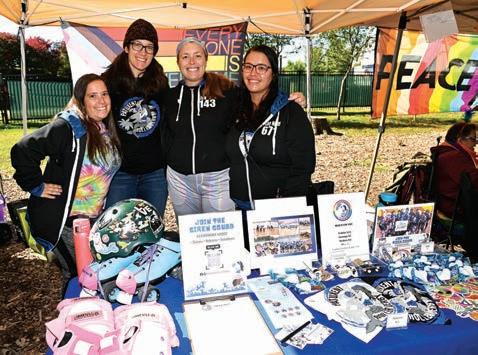


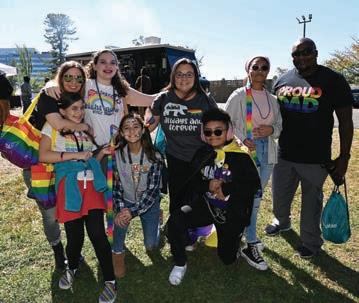





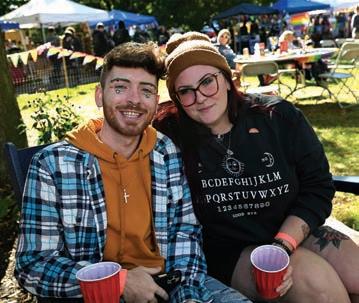

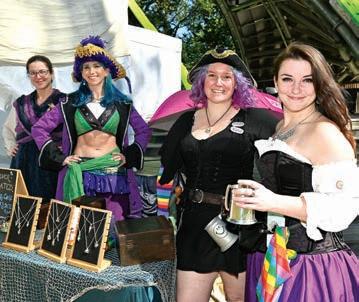

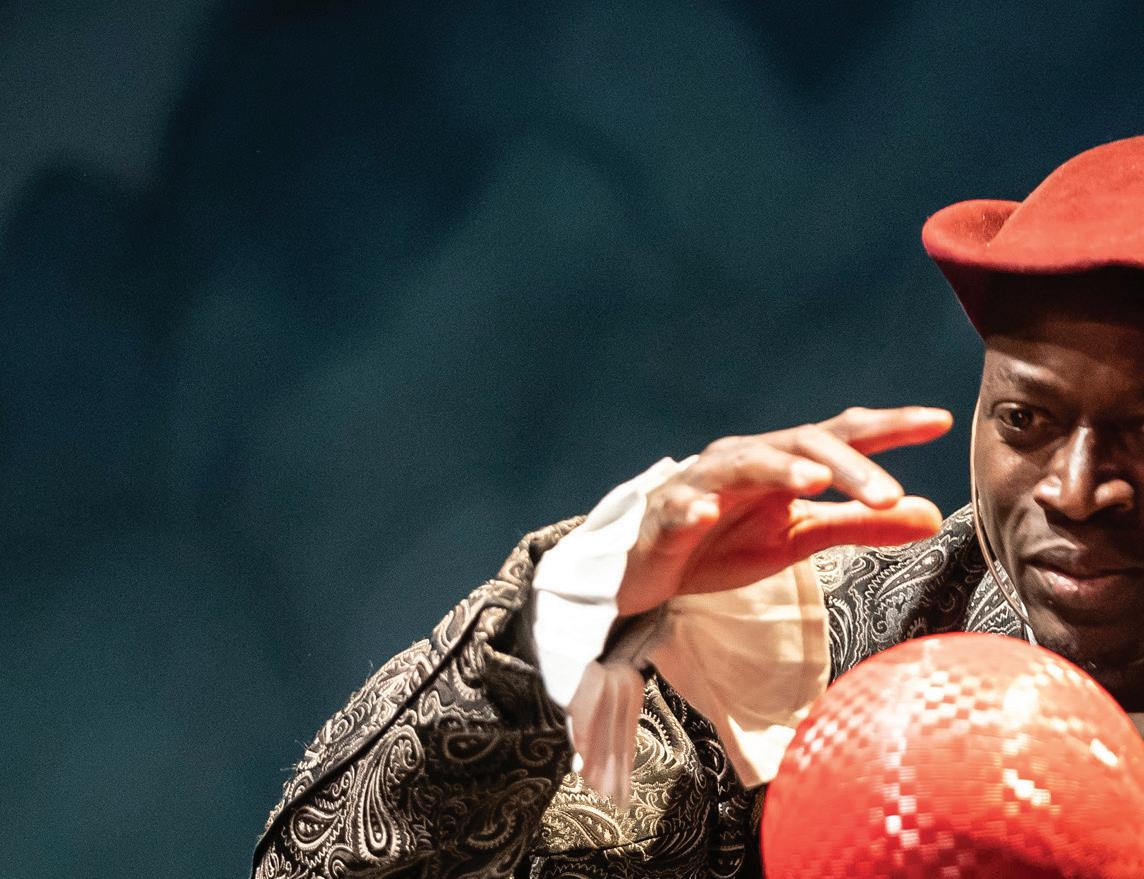







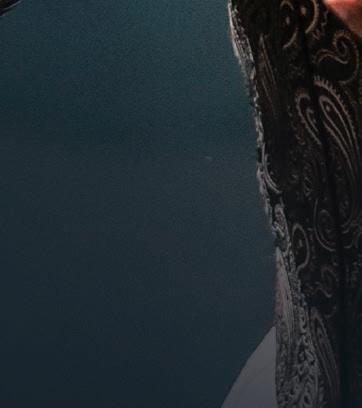




 By JOSEPH HUDSON
By JOSEPH HUDSON
I have seen more than a few emails come to my inbox with the words “price drop” and “price improvement” in the past few weeks. It seems that the days of a listing getting multiple offers are maybe not over, but less frequent. And while yes, the interest rates
with contingencies, at a lower than asking sales price, to ask for closing cost help, or help with buying down the interest rate. Some homes are even being marketed with these types of credits already being offered.

Why is this important? Well basically there is a rare opportunity here, because in “normal times” the D.C. area market is competitive. For the past seven years I have been advising my buyer clients that in some situations they may have to compete to get the home, which means doing such things as not having a home inspection, doing the home inspection before putting in the offer, asking to do a home inspection for information purposes only, having to escalate up above the asking price for the house, or closing in a shorter period of time than the usual 30 days.
of the house. This has not been the case for the majority of the last two years and even before that.
What is the takeaway here? Don’t let the news cycle, the attention-grabbing headlines, and the general state of anxiety in the world let you miss a good opportunity to
homebuyers and maybe even down payment assistance. Ask a knowledgeable Realtor and lender to guide you through this process and help you to stop paying rent and
The days of a listing getting multiple offers are maybe not over, but less frequent.
invest in yourself.
Where is the money? (According to Tina Del Casale from Sandy Spring Bank):
• In Maryland – Maryland Mortgage Program, Housing Opportunities Commission (MoCo), Pathway to Purchase (PGCo)

• In D.C. – DC Open Doors, HPAP, EAHP
• In Virginia - VHDA
• Local banks have grant funds up to $10,000 as well.
is a Realtor with The Rutstein Group of Compass.

Reach him at joseph@dcrealestate.com or 703-587-0597.

Explore our penthouse residence at 1460 Rhode Island and discover the elevated lifestyle you could be living in the heart of Logan Circle. The penthouse model features a luminous multi-level layout with three bedrooms, a den, two full baths, a powder room, direct elevator access, included parking and a private rooftop terrace. 1460 Rhode Island is the epitome of living well in the heart of Washington D.C.








Residential & Commercial Cleaning, Reasonable Rates, Free Estimates, Routine, 1-Time, Move-In/Move-Out 202-234-7050 / 202-486-6183



with a refreshing massage. Private studio near Courthouse in Arlington, Sun - Wed, 12-9 Gary@301-704-1158, mymassagebygary.com




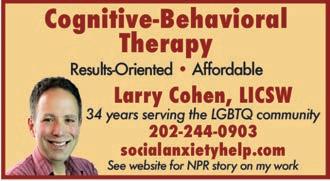
People
counseling
peer
REBRANDING The Academy of Hope Adult Public Charter School
in Washington, DC
proposals for rebranding.
due October 31st,
detailed


Services every Sunday at 11 AM. Please join us October 16, Homecoming Sunday 11am. All are invited and there is a traditional Methodist potluck following the service with former pastor Rev. Tom Brunkow preaching. Singer Tori Amos’s father Rev. Ed Amos was a Dumbarton pastor in the 60’s, Ms. Amos who grew up in the parsonage has not rsvp’d yet. Pete Seeger who played at a Dumbarton Peace protest in the 70’s also has yet to rsvp.
Let Our Movers Do The Heavy Lifting. Mention the Blade for 5% OFF of our regular rates. Call today 202.734.3080. www.aroundtownmovers.com

FREE RENT FOR PT SUPPORT for Disabled Adult Special Ed Professional. FREE ROOM in 2BR Arlington apartment PLUS $15/hr – Provide life skills support for young trans woman w/autism & mild intellectual disability. 15-20 hours/wk. Women only; email inquiries to: opening.salvo@gmail.com.
WELL HUNG ITALIAN SUB
NESTLED IN THE WOODS, A NEWLY RENOVATED. Parking to accommodate 3 cars + easy street parking. Three (3) full baths. Five (5) gorgeous bedrooms with a full master. Fully enclosed insect free deck suitable for outdoor dining as well as relaxing with friends and family. A wheelchair access ramp. Deposit & Fees $4,200.00 View by appt. only. Call: Marcie 301-646-8569
WHITE MALE, 6’ 3”, 200 lbs,
hung. ISO, short, stocky, white yuppie, professional, athletic, hung, submissive
for pleasurable evenings.
Local licensed company with over 25 years of experience. Specializing in bathrooms, kitchens & all interior/exterior repairs. Drywall, paint, electrical & wallpaper. Trevor 703-303-8699
